Sondre Guttormsen joined the 6.00 meter club while winning NCAAs today!!
Zach Bradford second with a big PR of 5.91!!
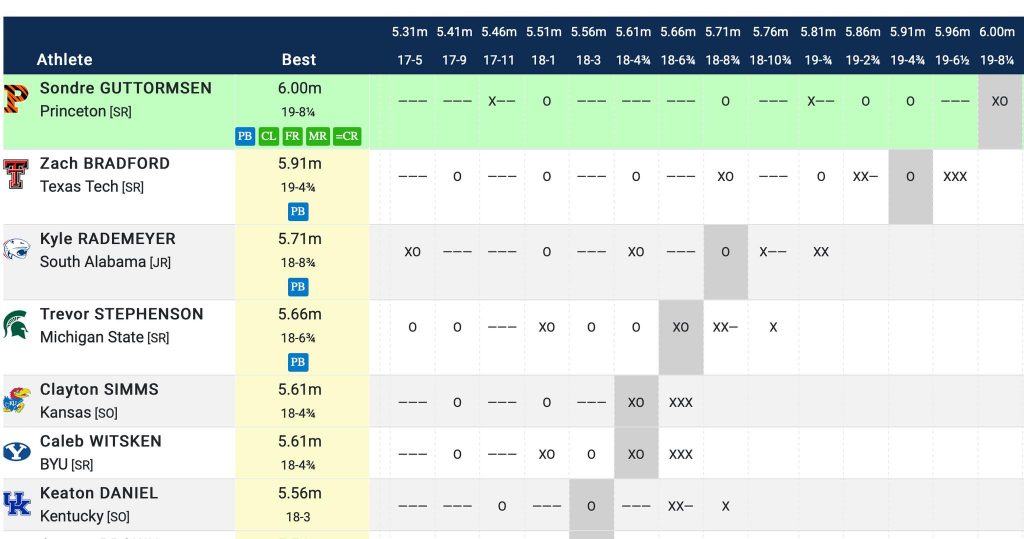
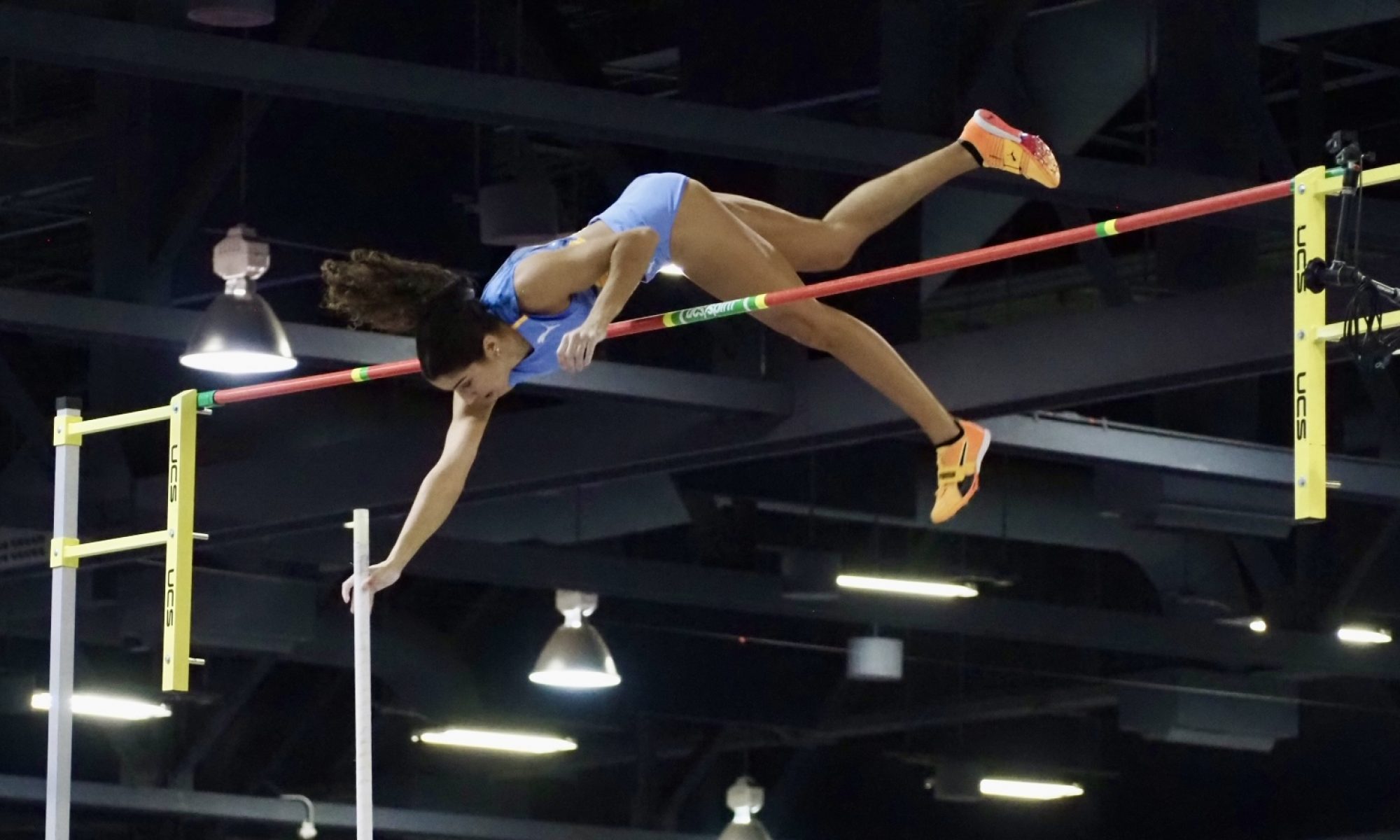
Perpetually Tilting at Windmills
Sondre Guttormsen joined the 6.00 meter club while winning NCAAs today!!
Zach Bradford second with a big PR of 5.91!!

Bob Richards passed away this morning.
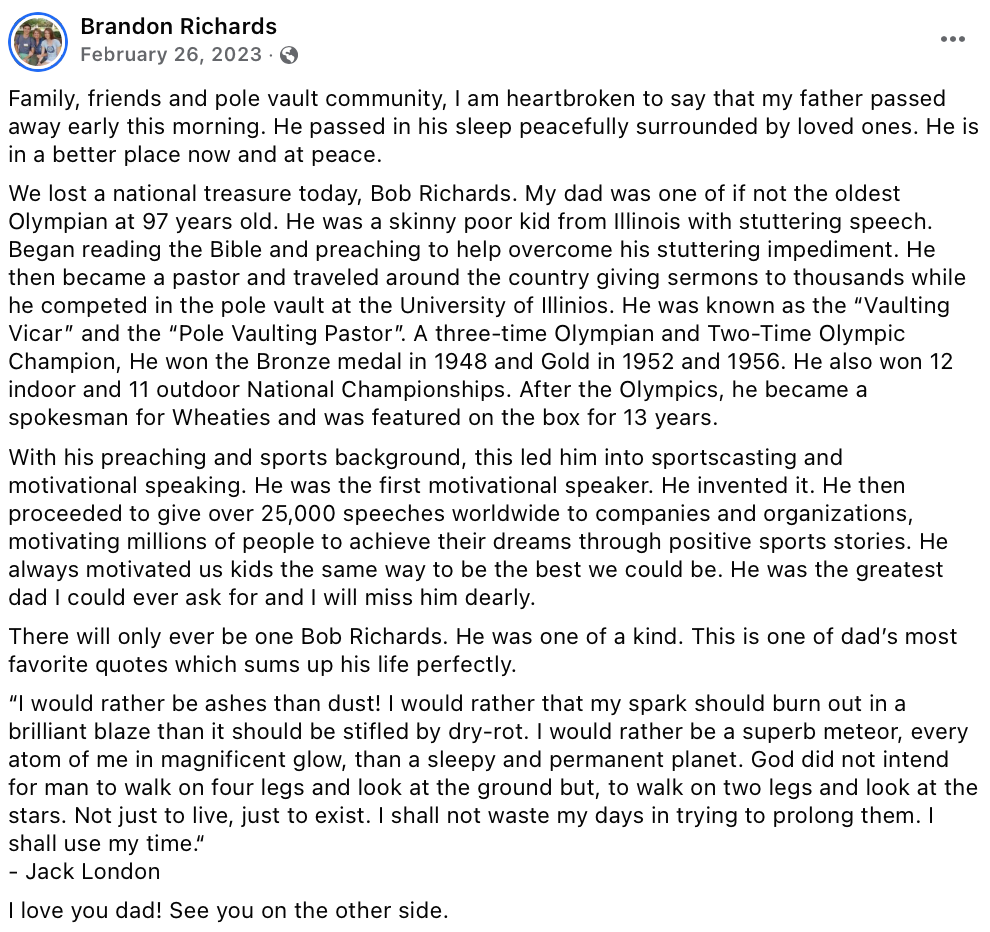
There is a situation out of Haverford College involving a “John Doe” that I think will generate some interesting discussion…
Huge caveat up front: We only have one side of the story. There are lots of reasons why a victim may choose not to cooperate with an investigation, that does not mean it did not happen.
I have posted the initial complaint in this lawsuit. The response from the school was filed under seal, but the response from John Doe was not, so I posted that as well, and I posted the opinion from the judge who denied his request to force the school to put him back on the team.
The short version of this story is that John Doe was a college junior chosen by the coaches to be a captain of the Haverford track team. Allegedly a rumor was started that he had sexually assaulted a female student in the school, and the other co-captains on the team wanted him removed from the team.
The coach asked him to step off the team while the matter was investigated, which he voluntarily did. No complaints were made to the Title IX office or anyone else. The Title IX office reached out to the alleged victim and she declined to cooperate.
Having no case, the matter was closed and the Title IX office confirmed he was in good standing with the school. But the coach refused to reinstate him. The bottom line seems to be that the coach and other athletes did not like him. Doe alleges that they do not like him because they believe this false rumor, he denies having ever had any sort of physical or sexual contact with the alleged victim.
Doe also alleges that because they would not reinstate him to the team, it makes him look guilty in the eyes of everyone else on campus. This started a year ago, he filed this lawsuit to try to get an injunction to put him back on the team so he could participate in his final season.
One of the overarching questions here is, “should coaches have the right to remove athletes from the team at any time for any reason?”
May 2024 update: “The coach and the college were vindicated, their impeccable reputations intact.” https://casetext.com/case/doe-v-haverford-coll-1
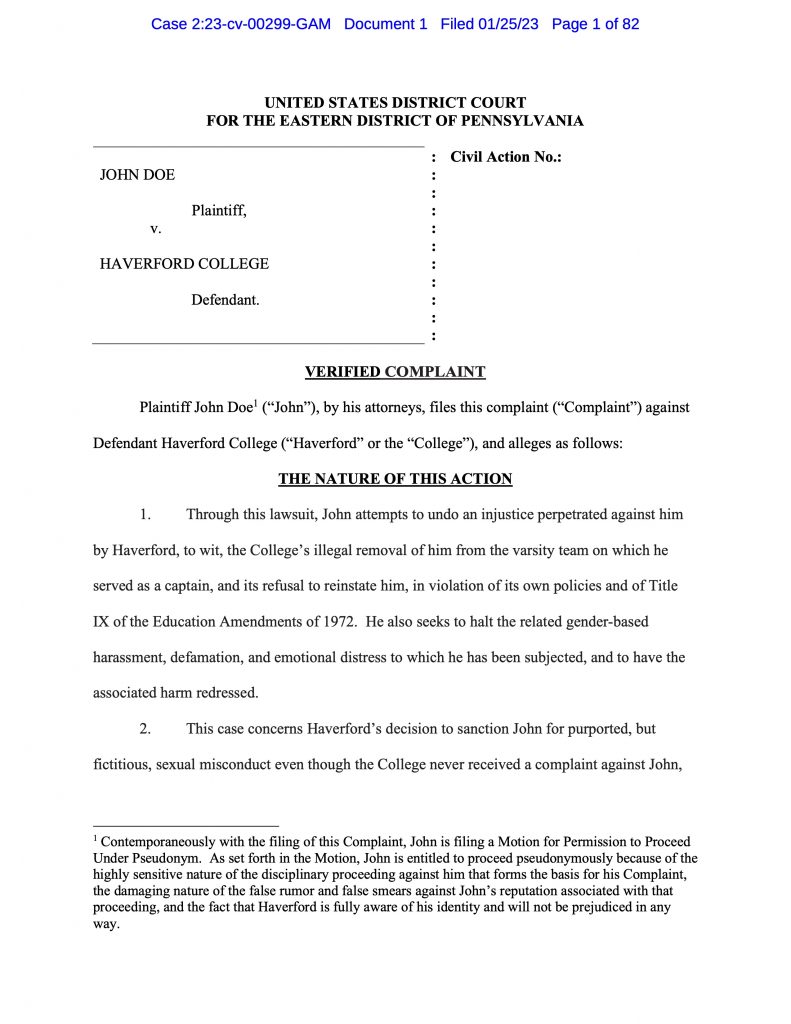
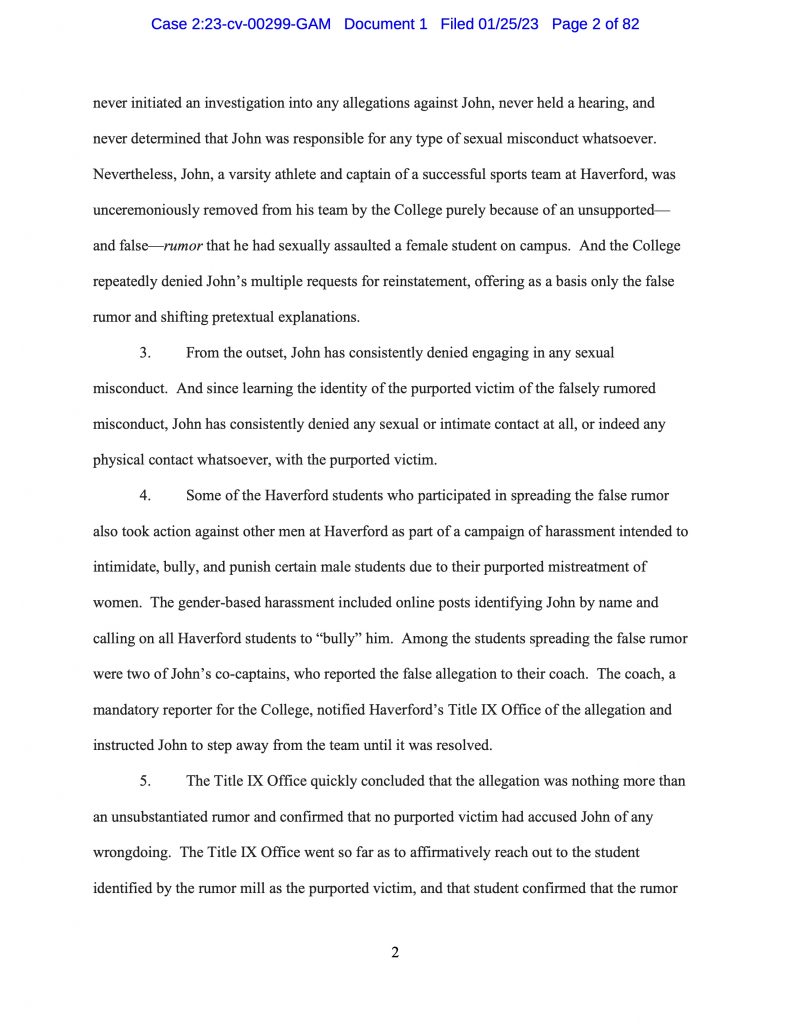
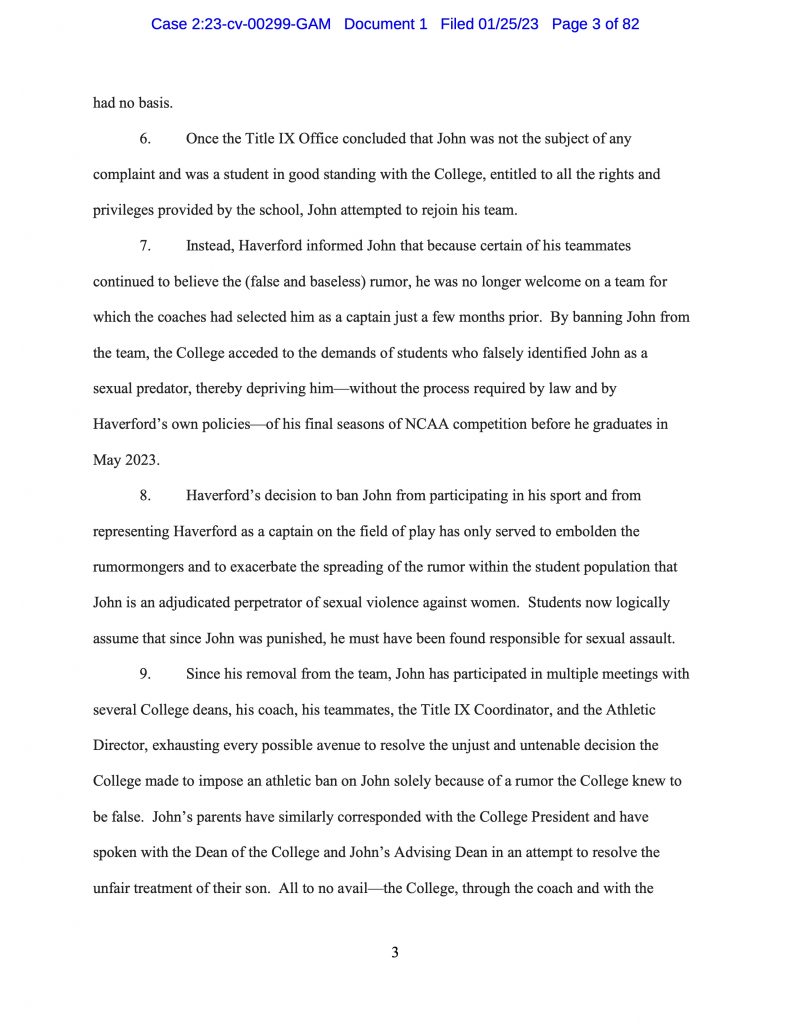
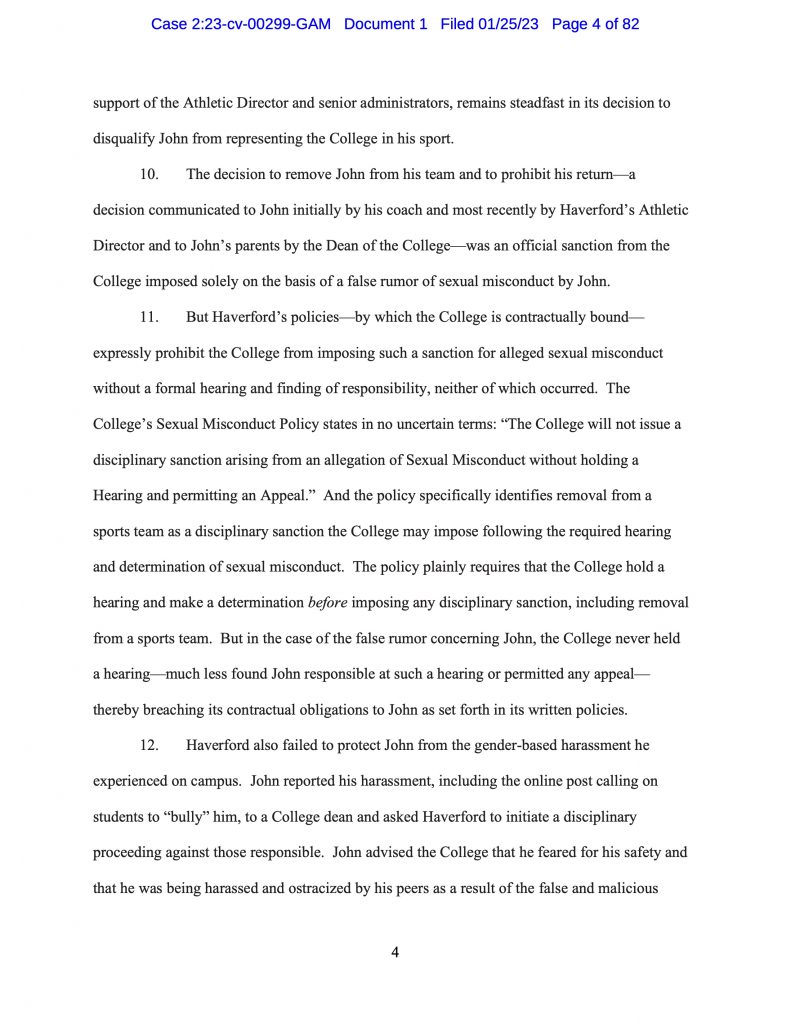
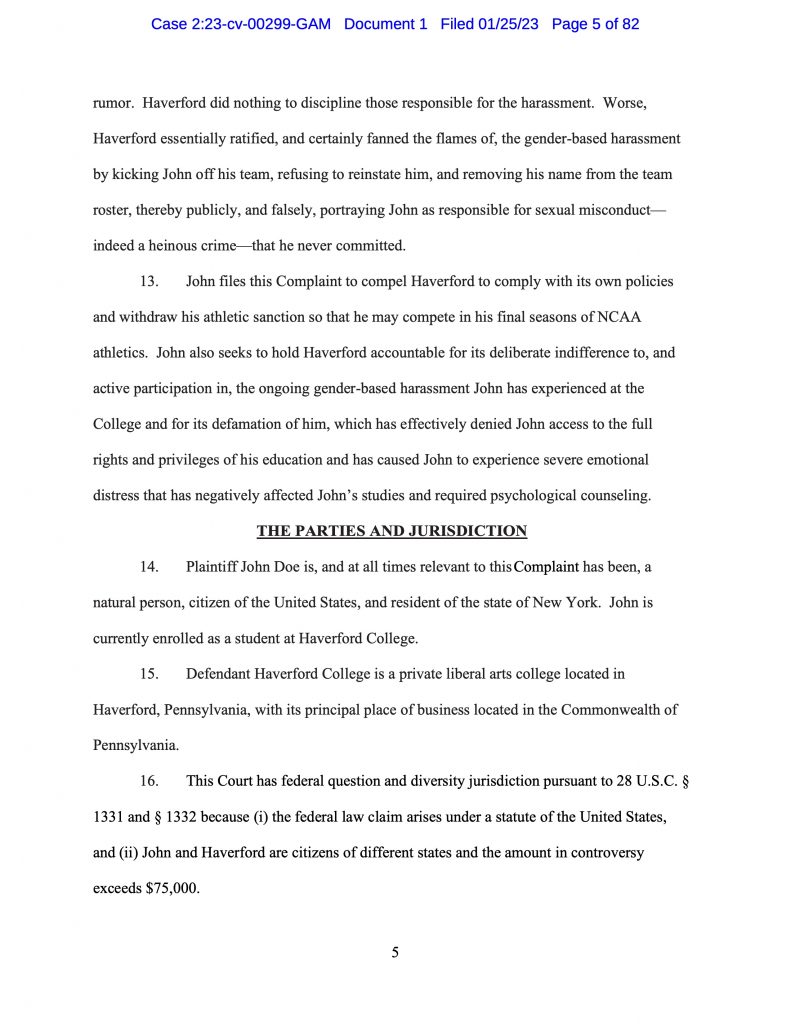
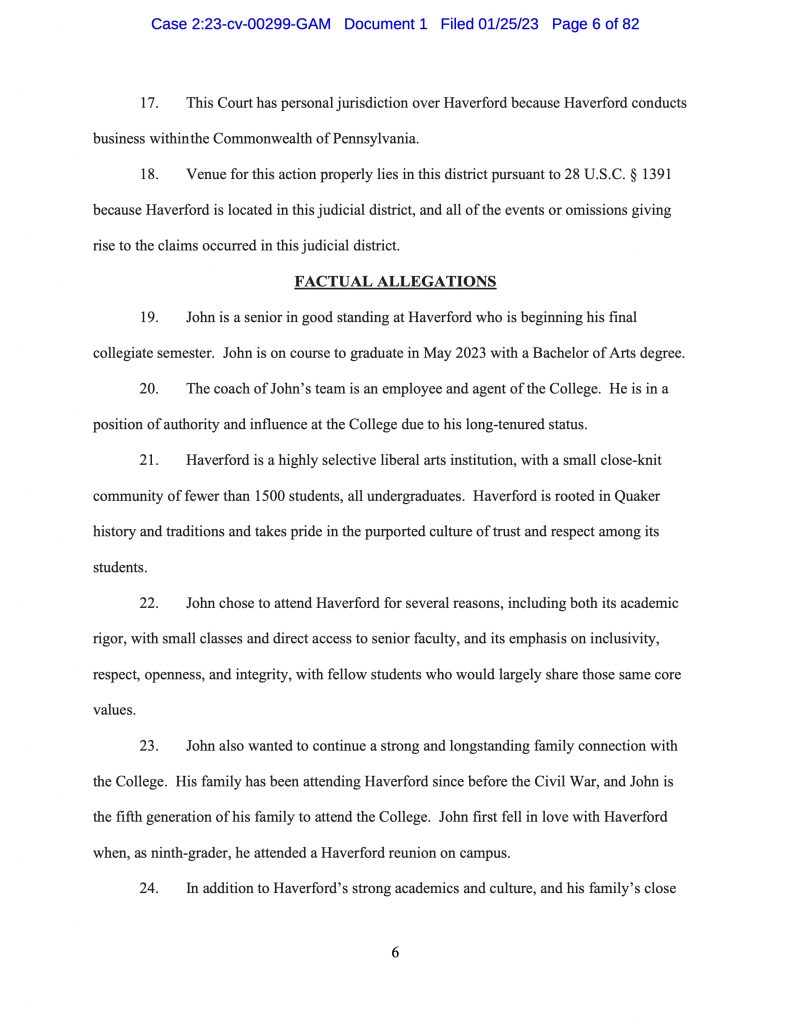
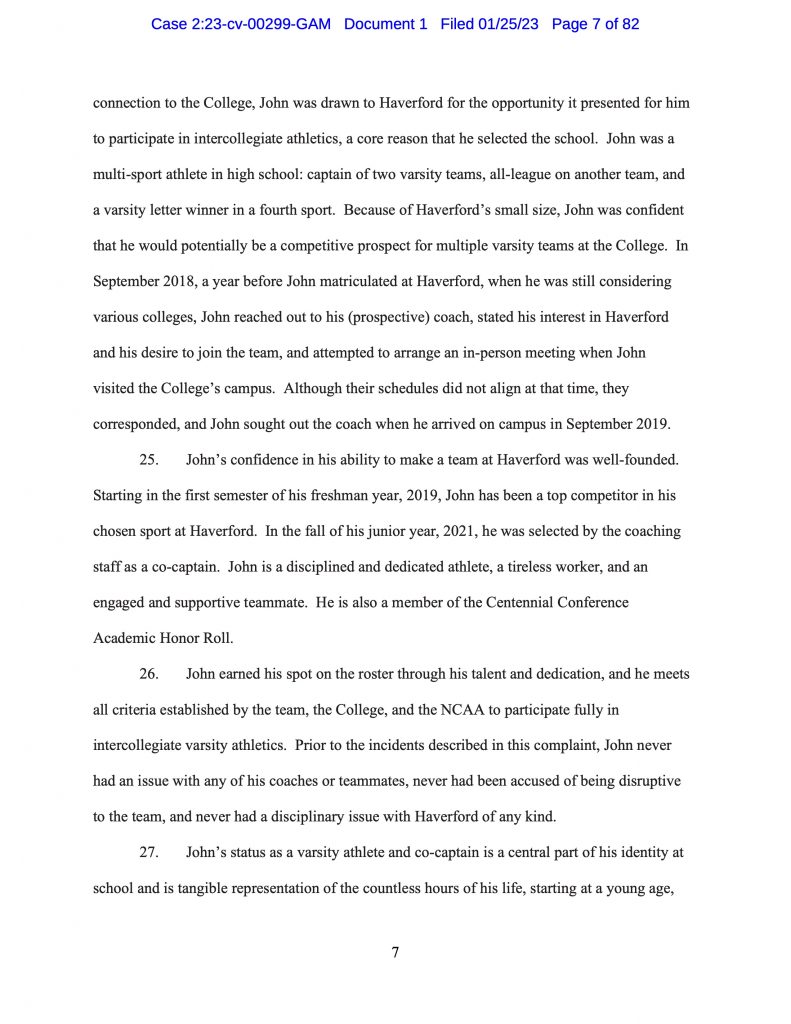
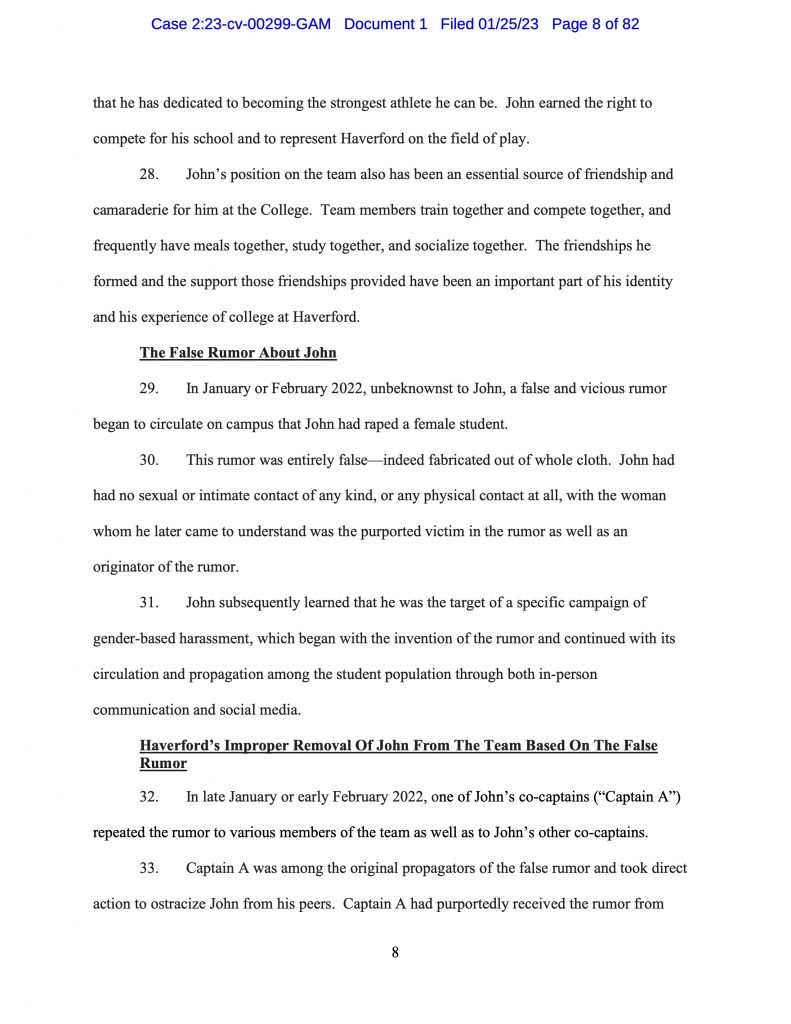
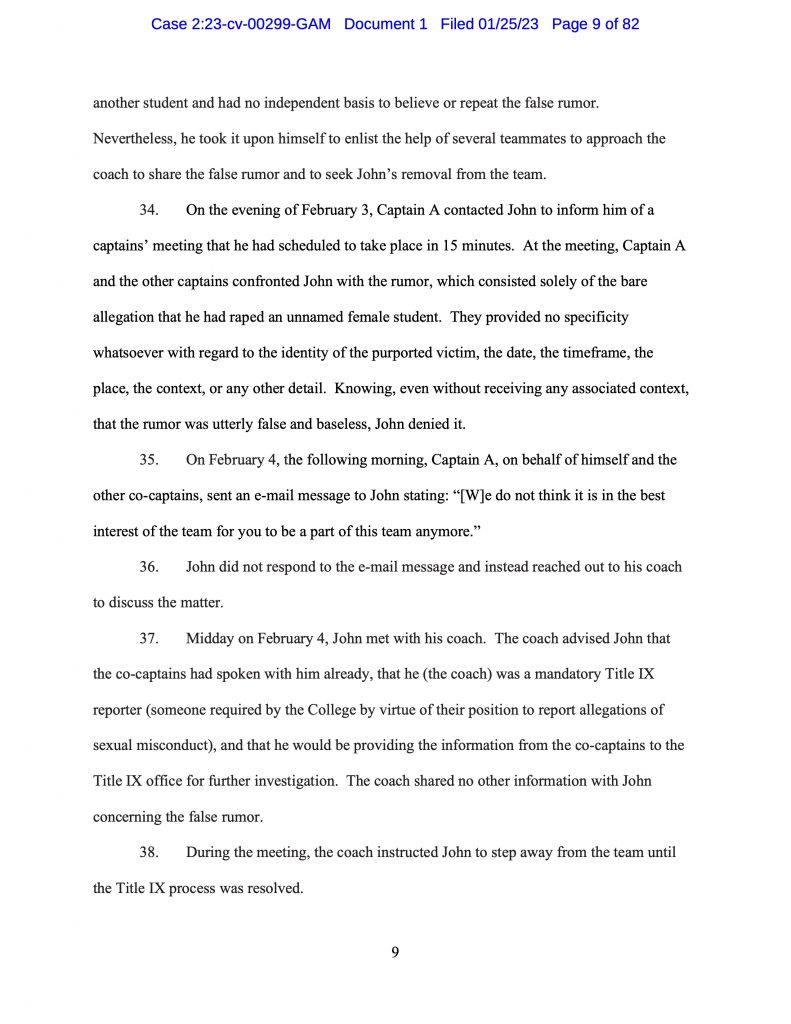
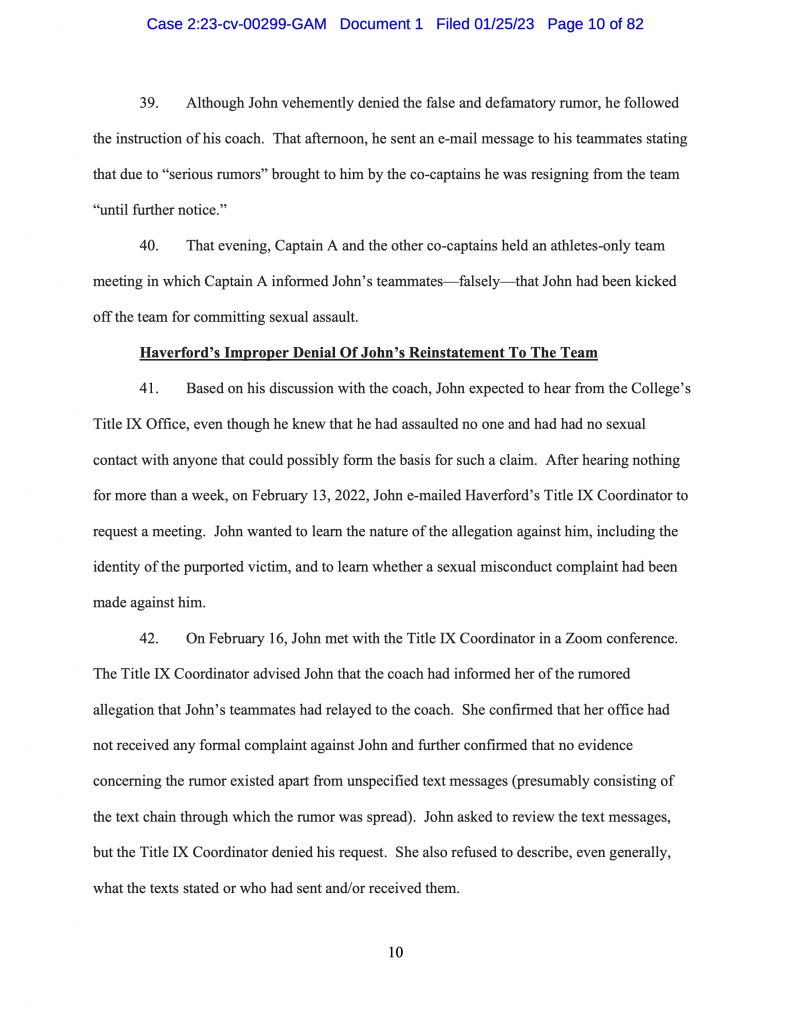
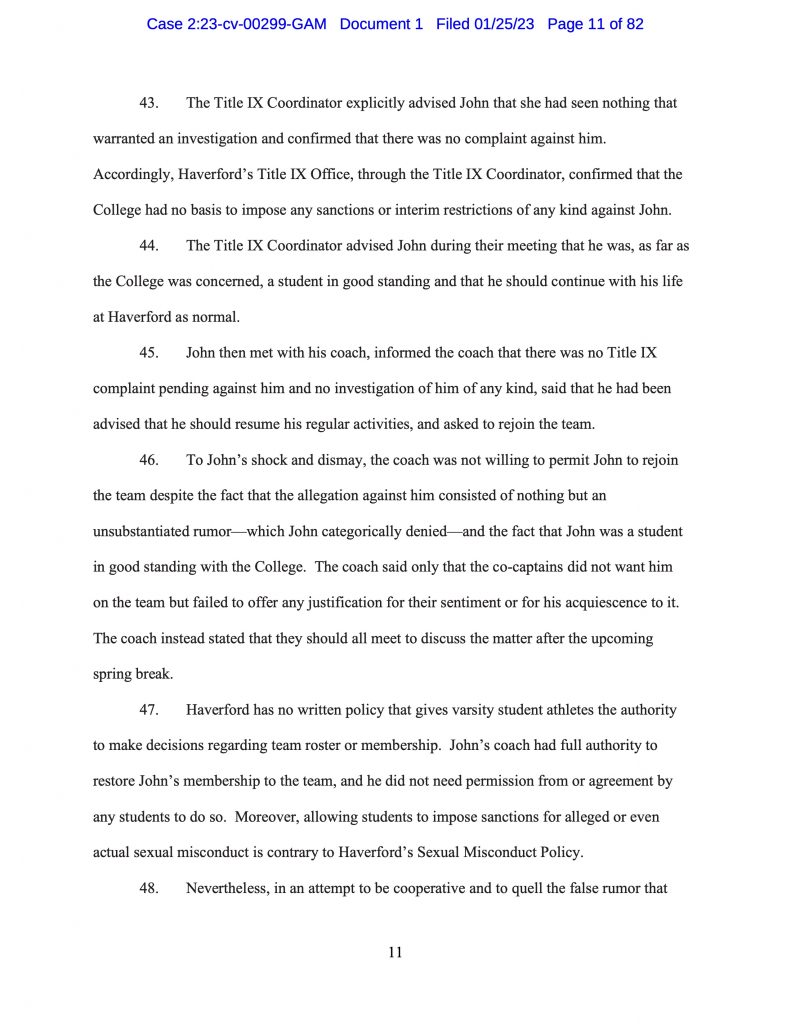
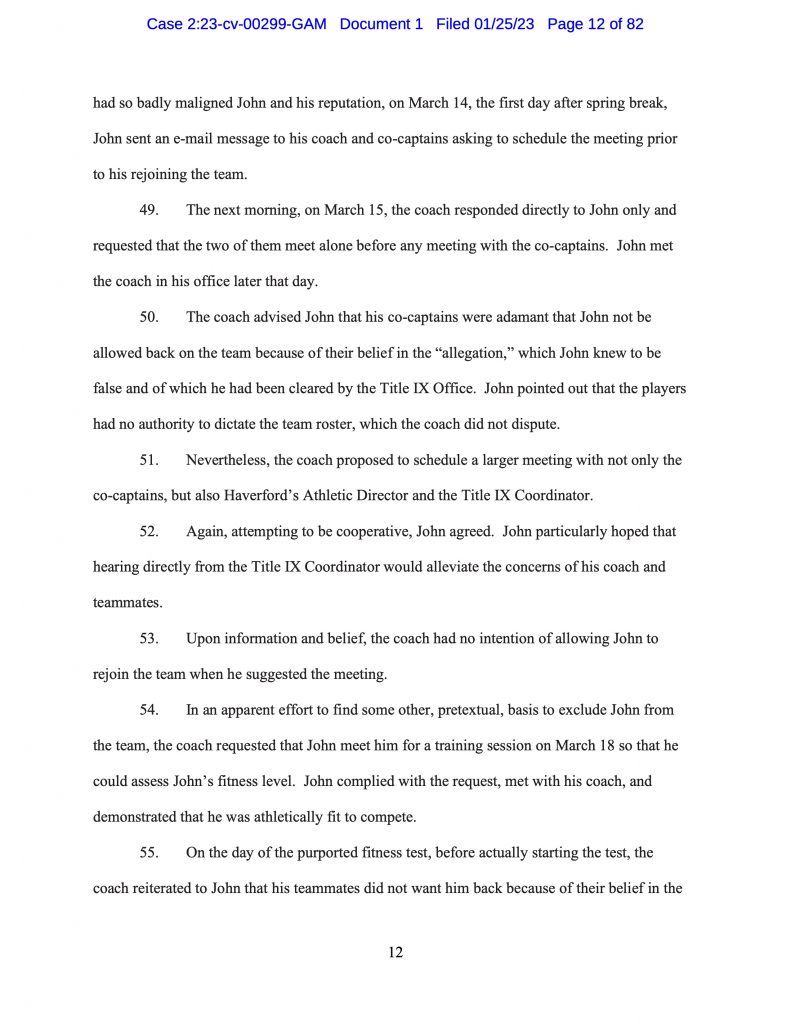
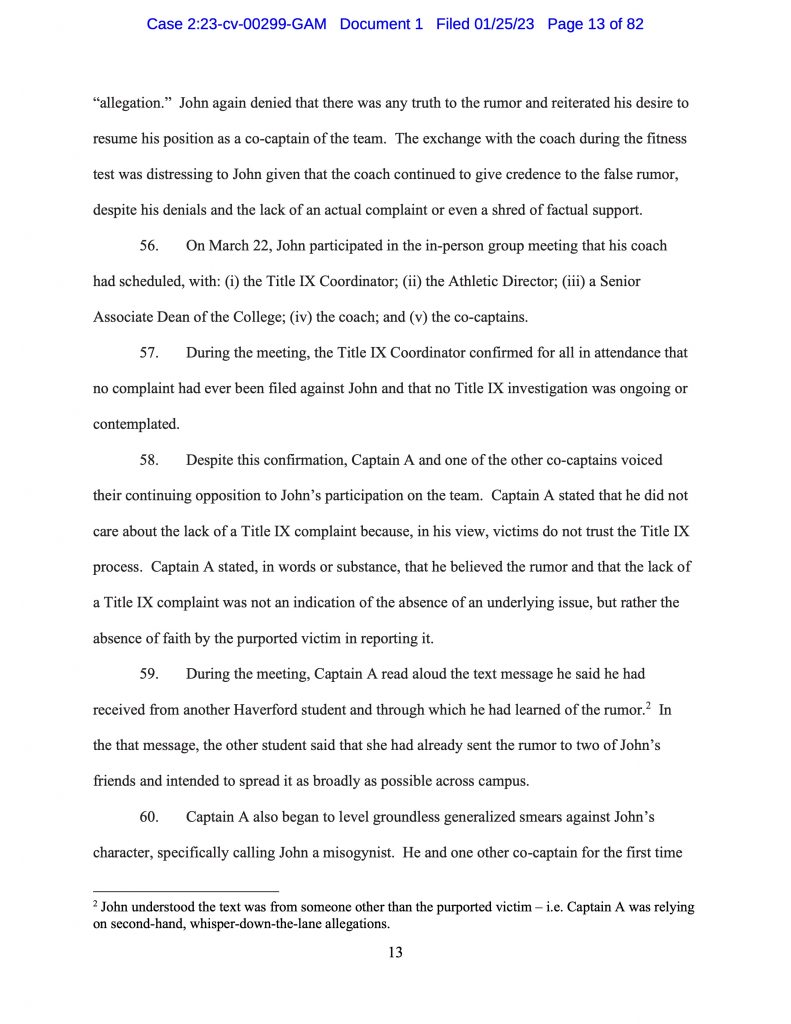
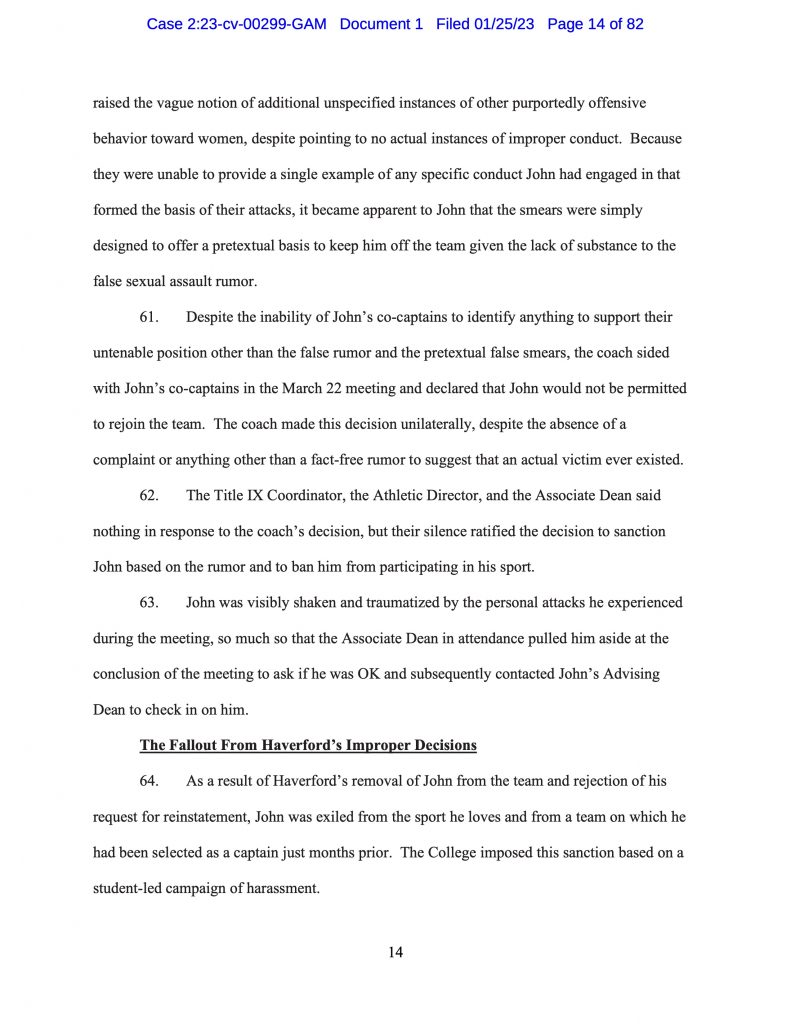
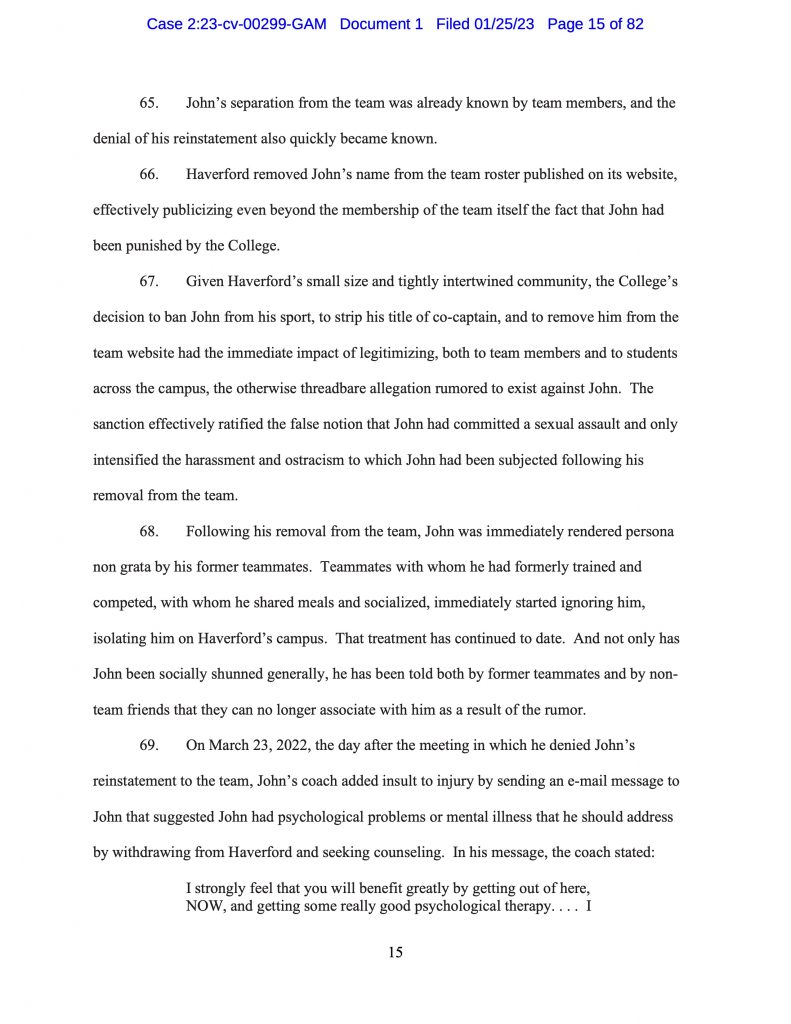
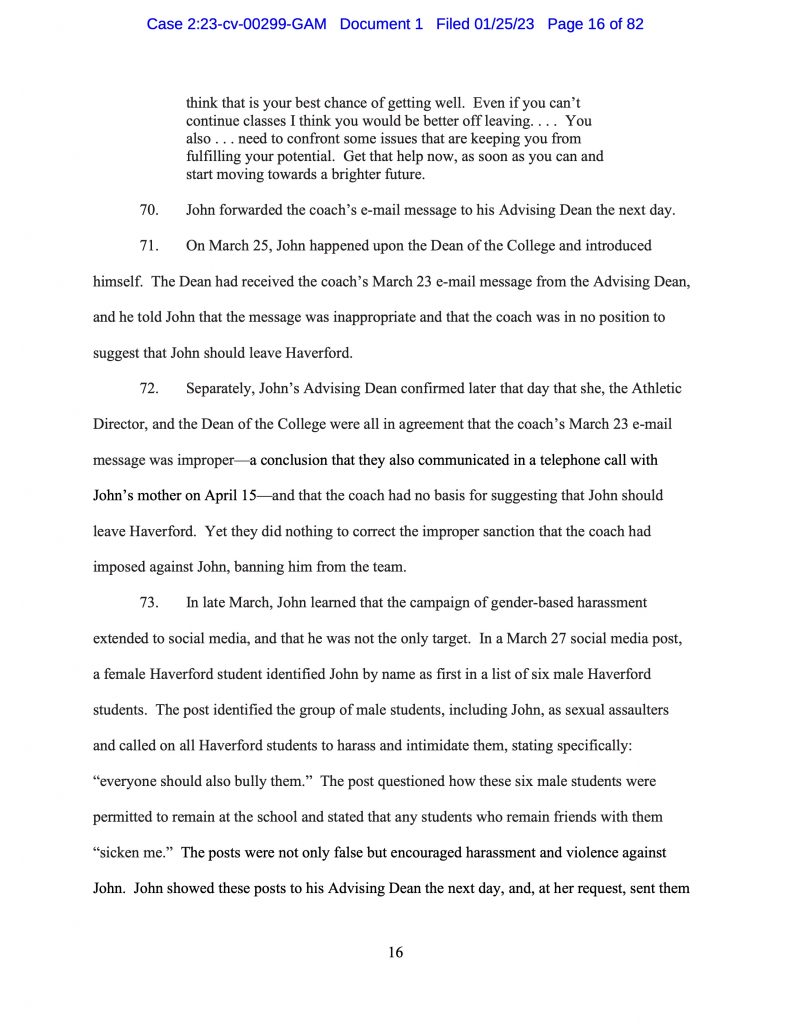
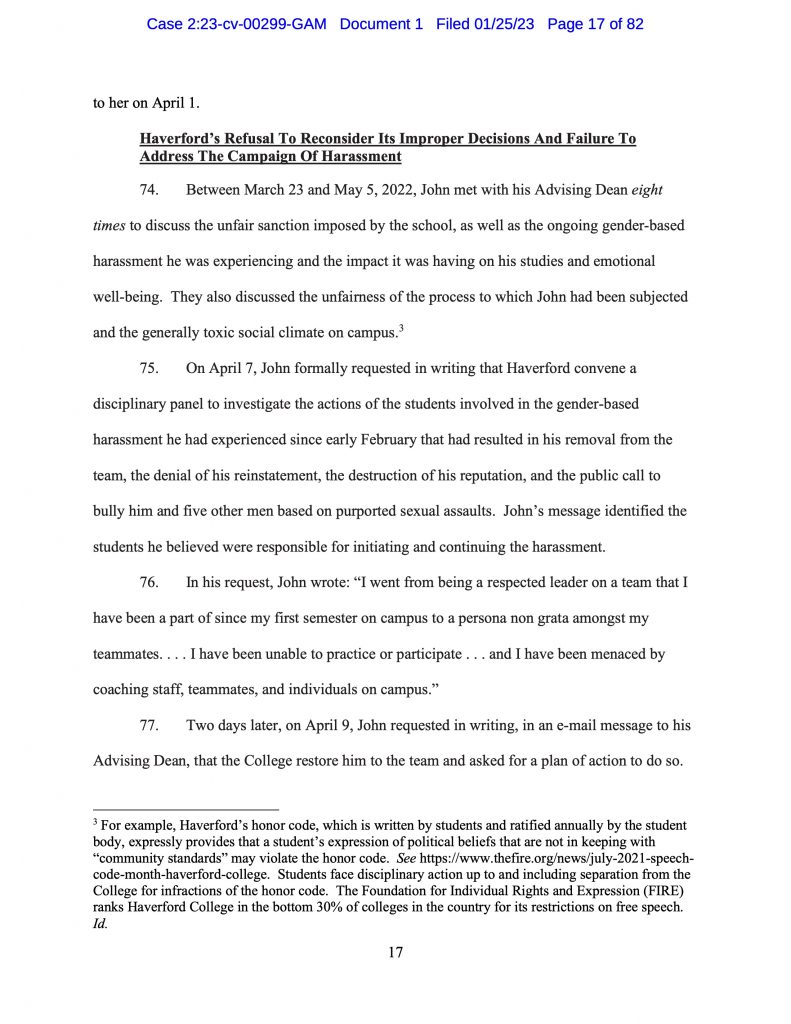
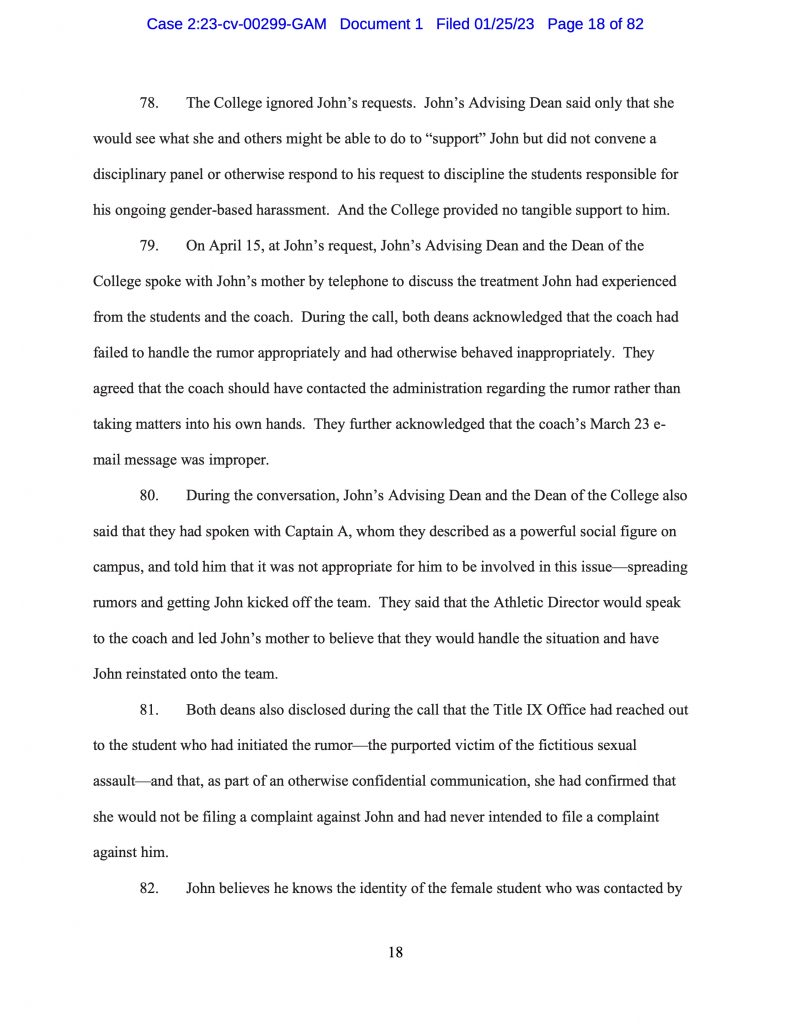
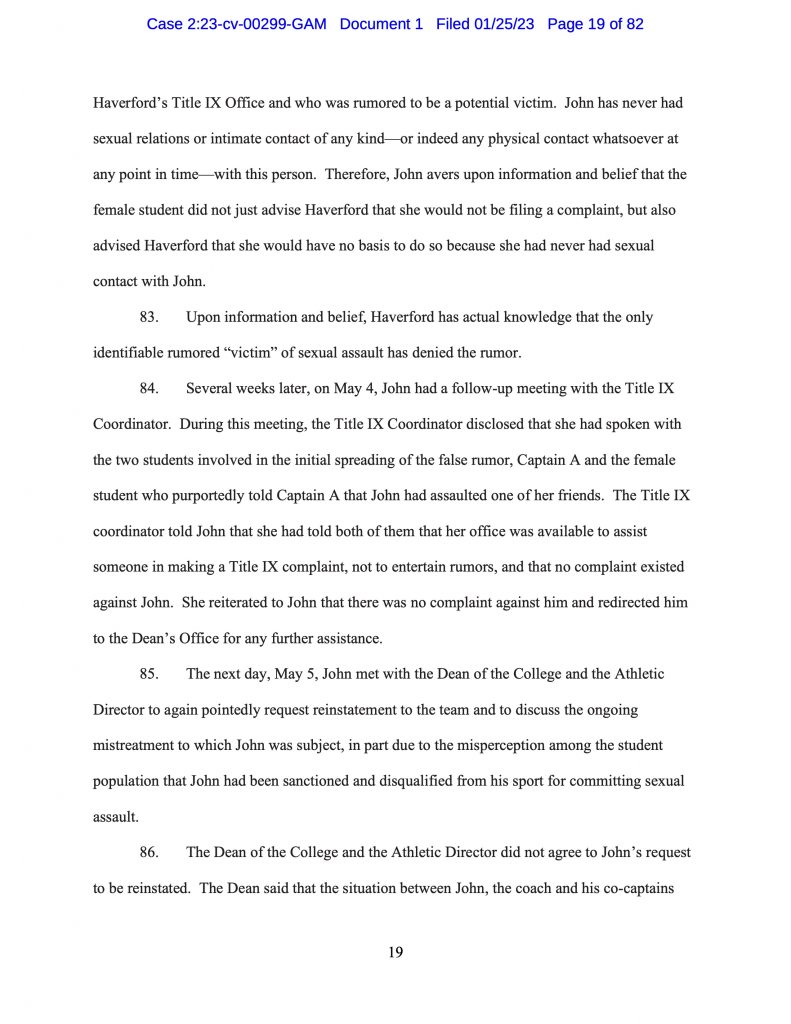
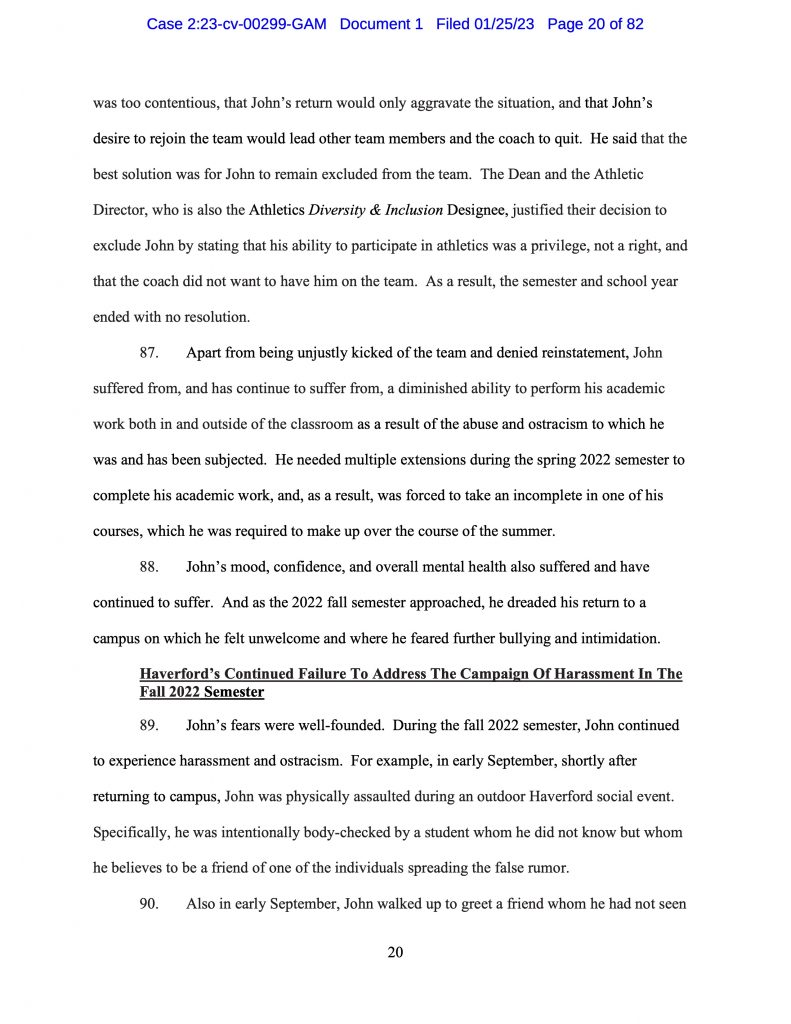
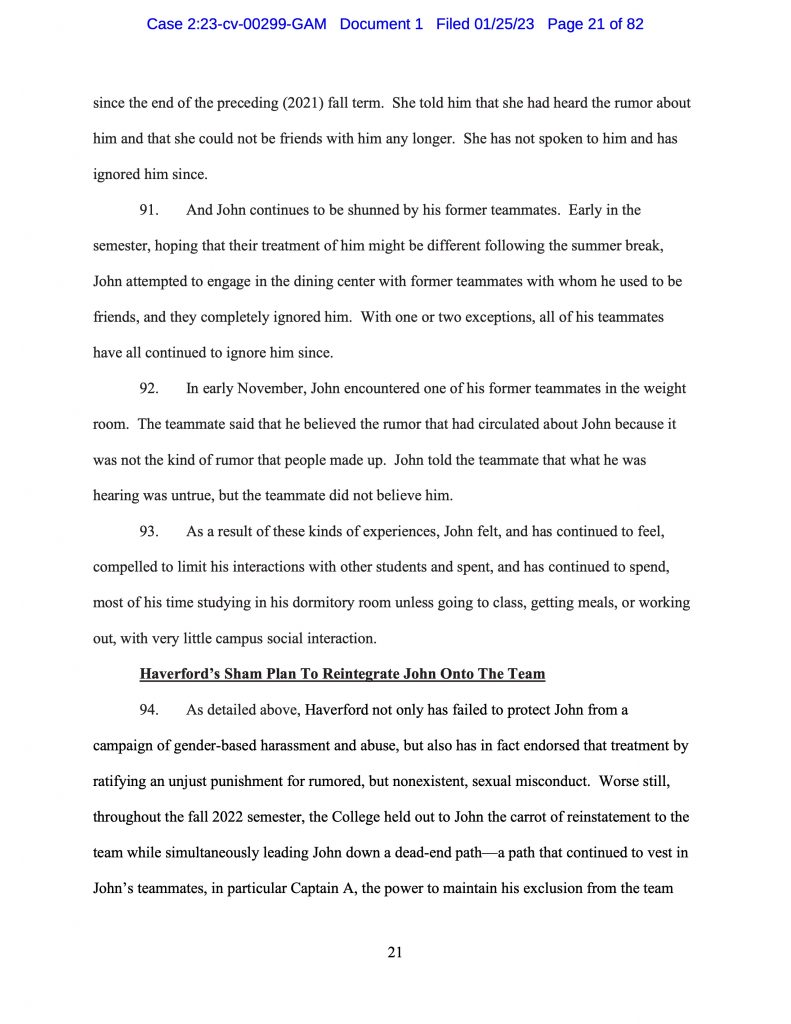
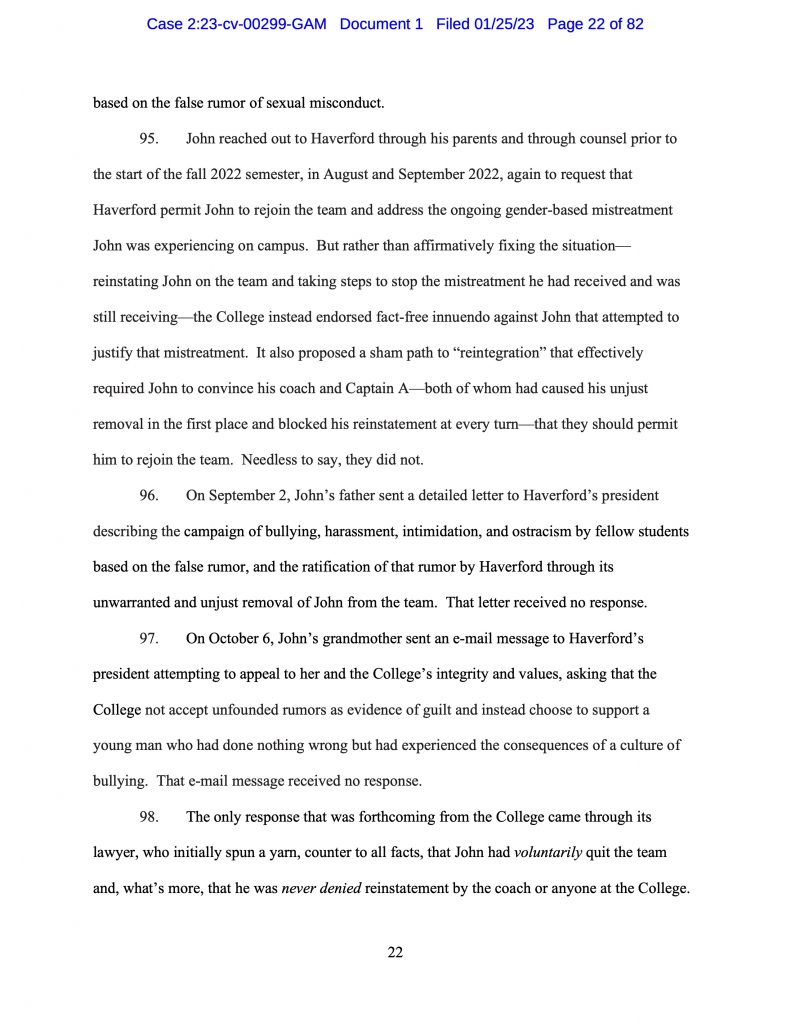
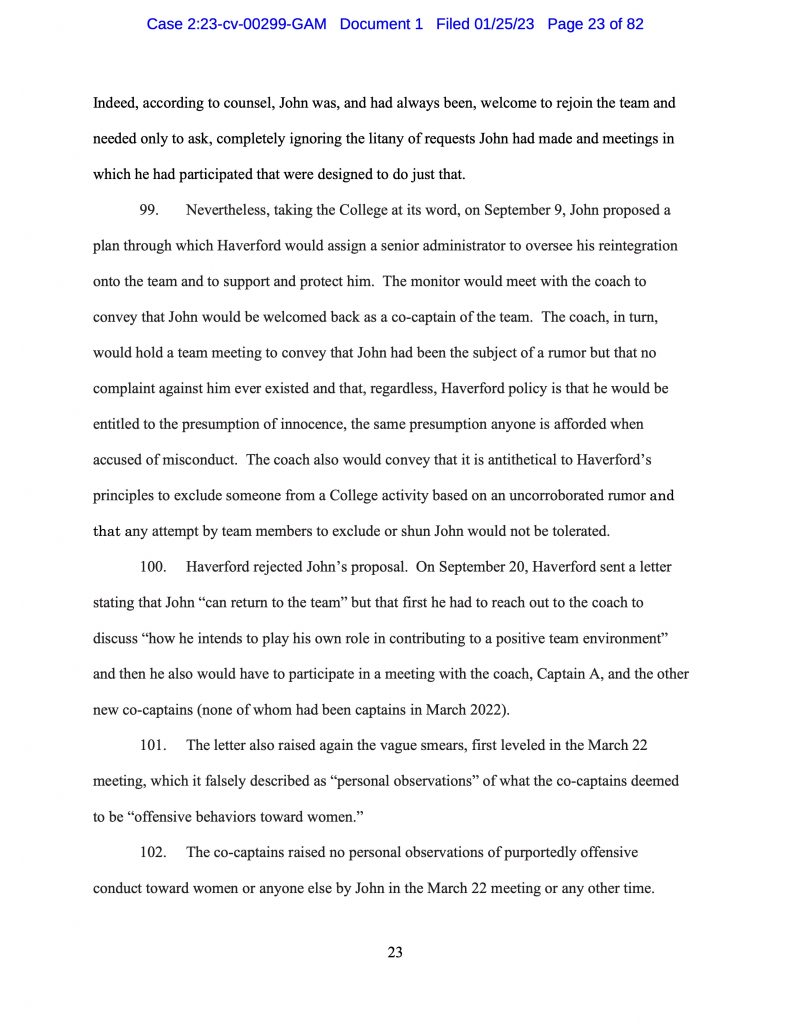
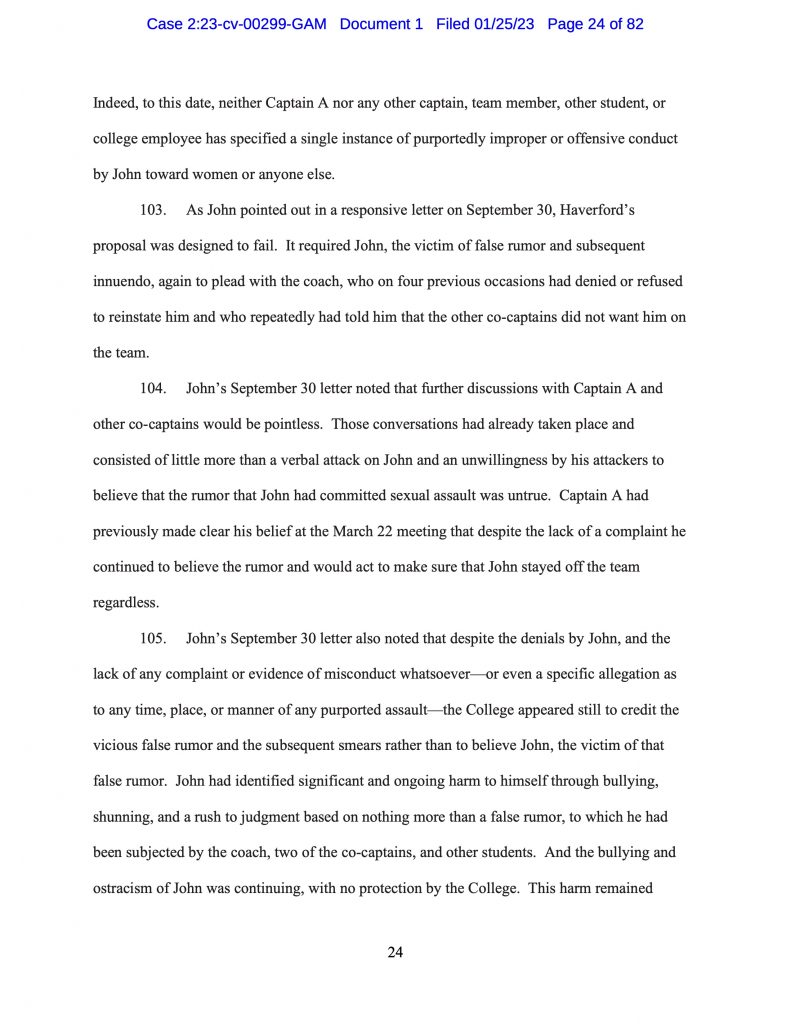
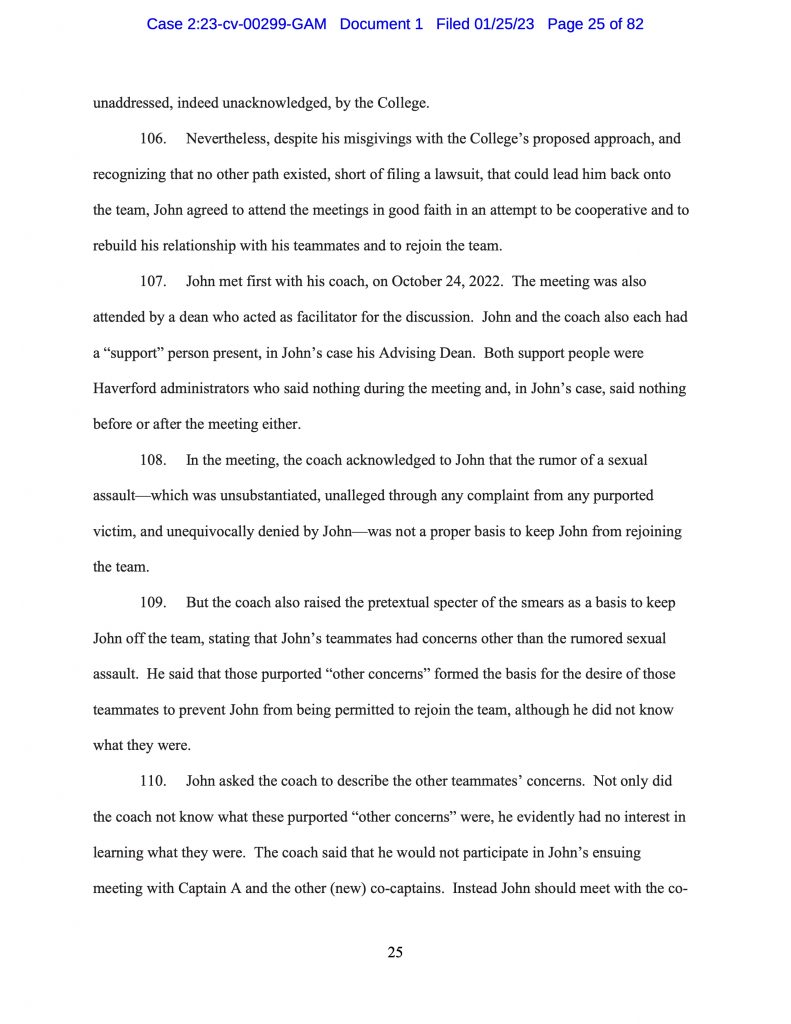
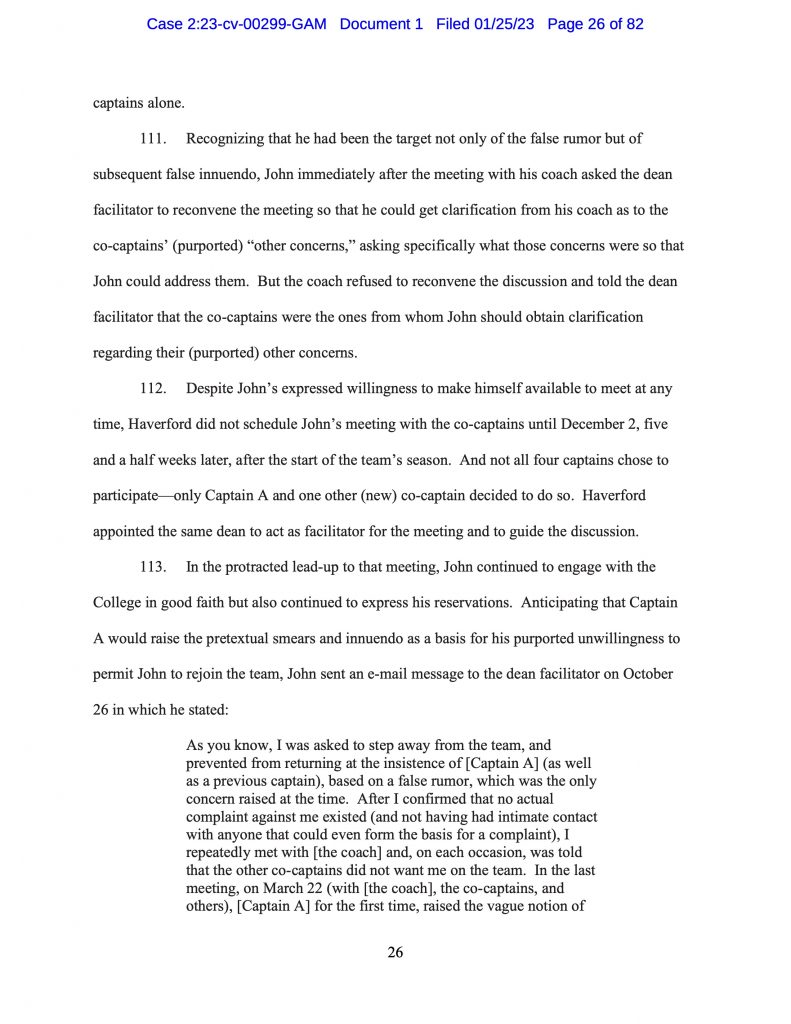
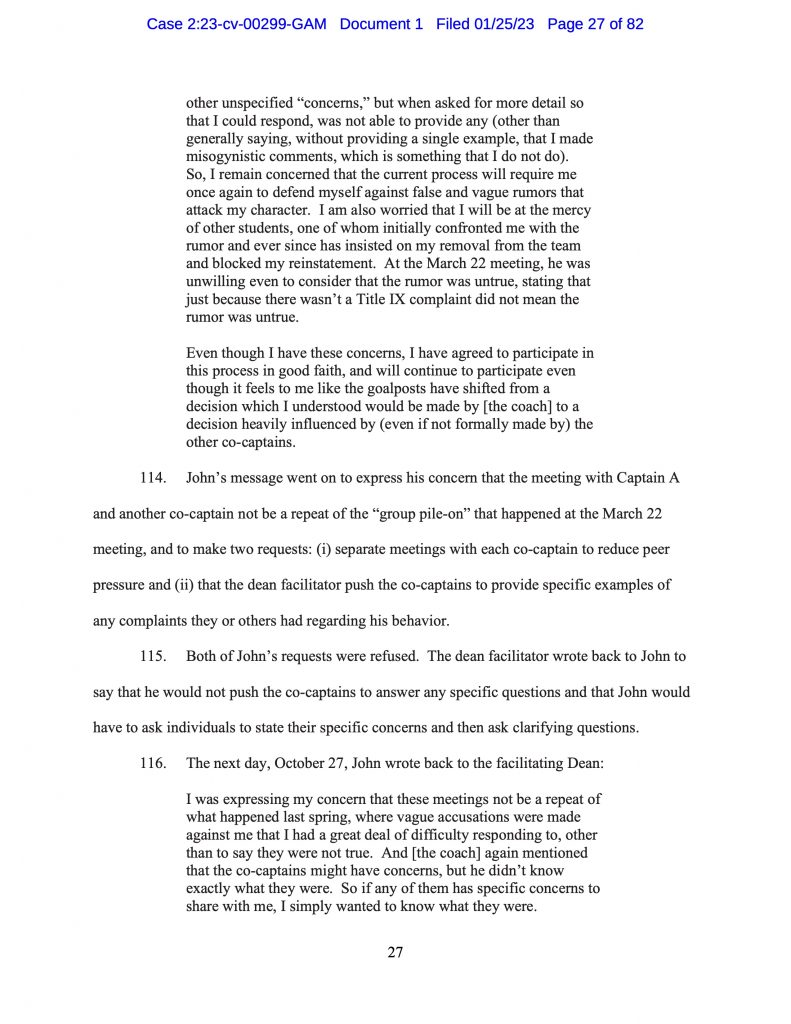
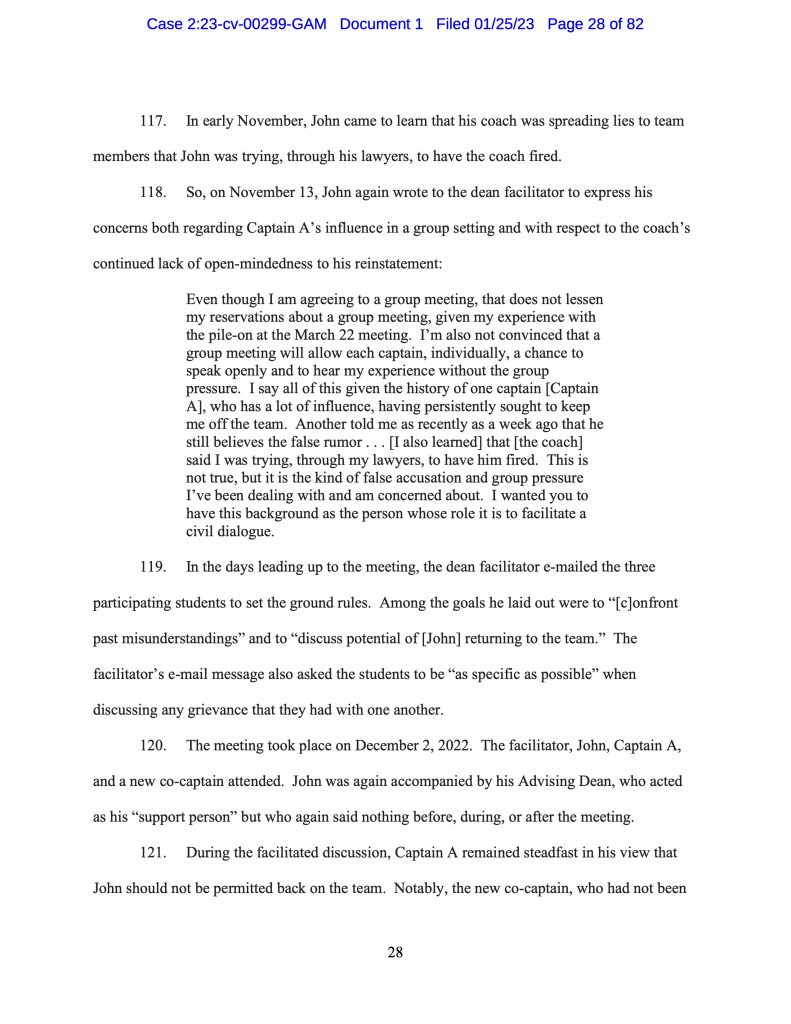
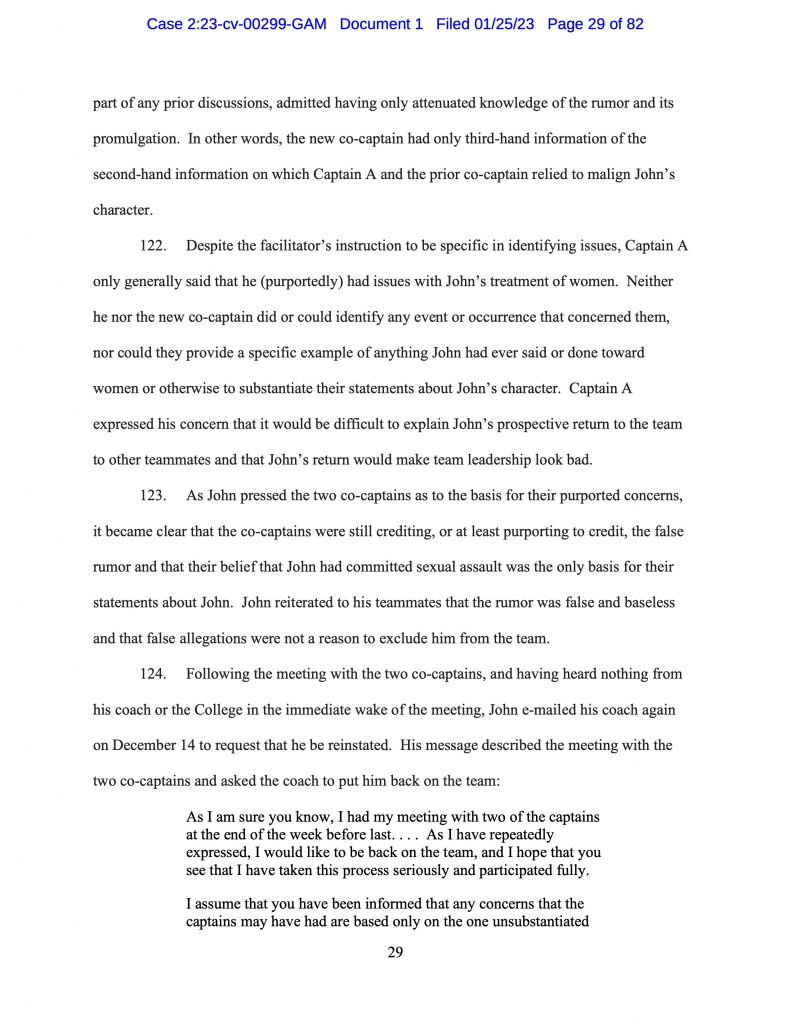
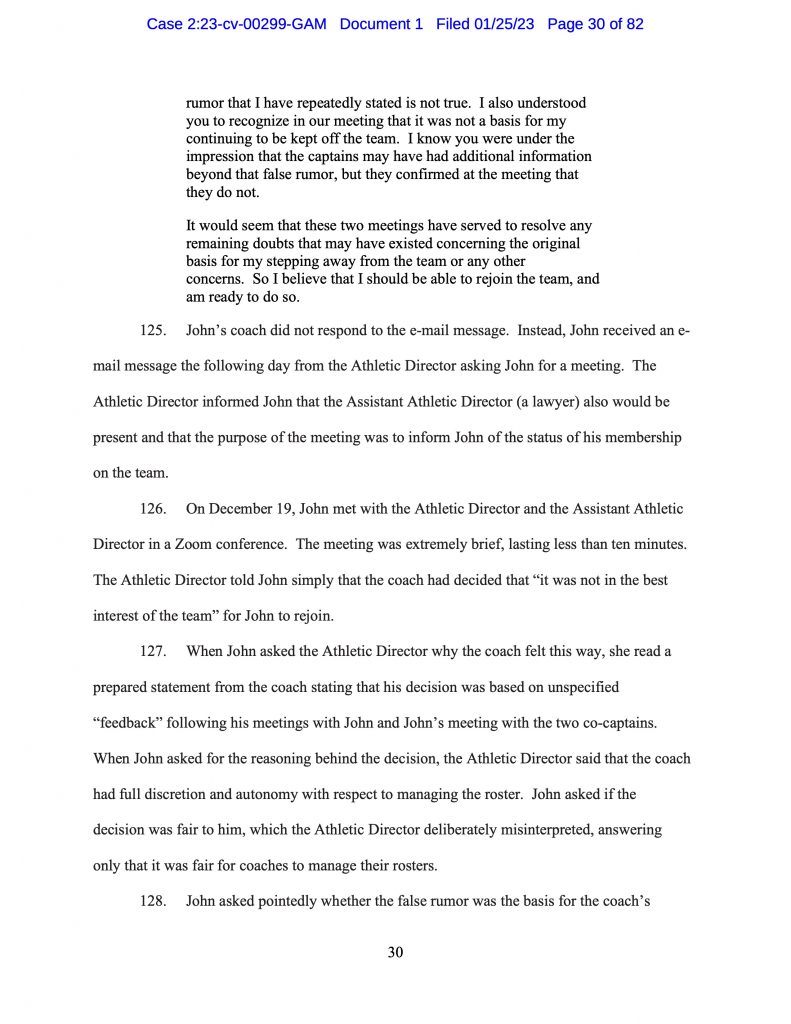
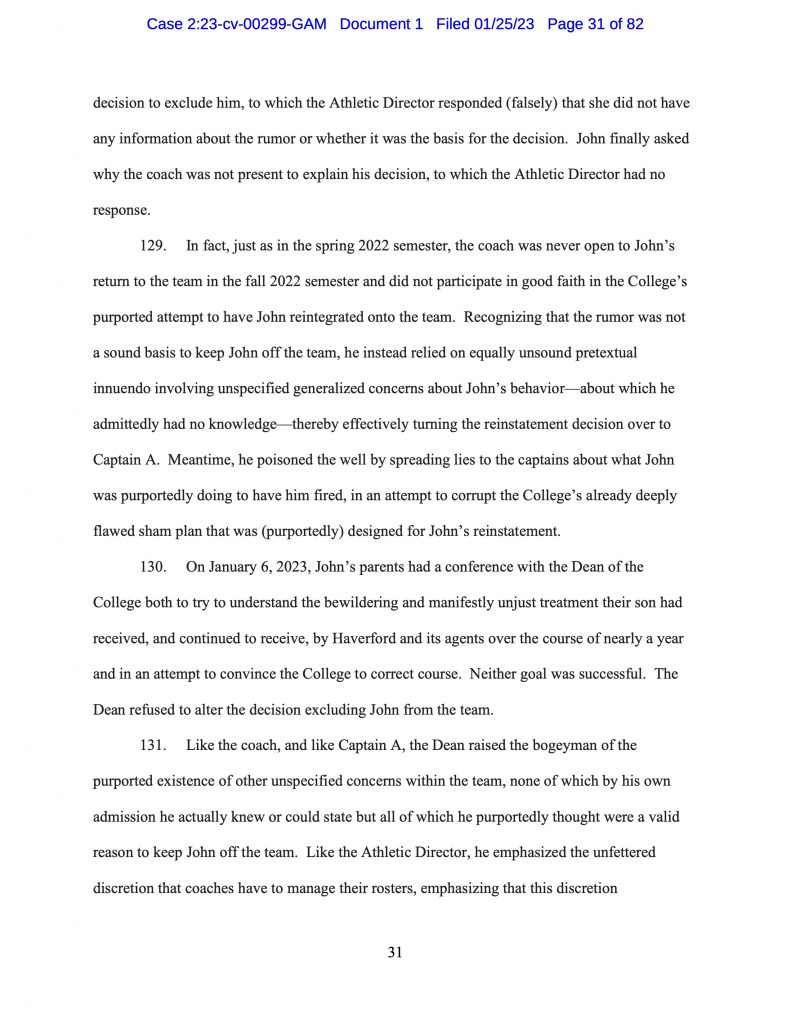
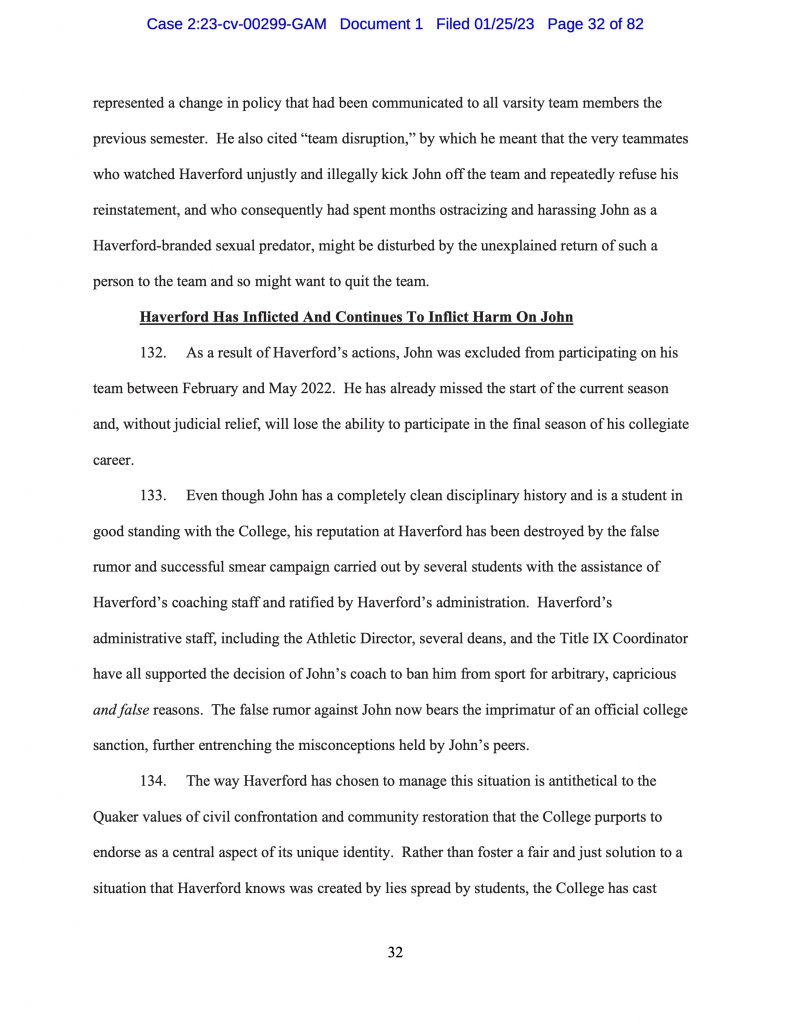
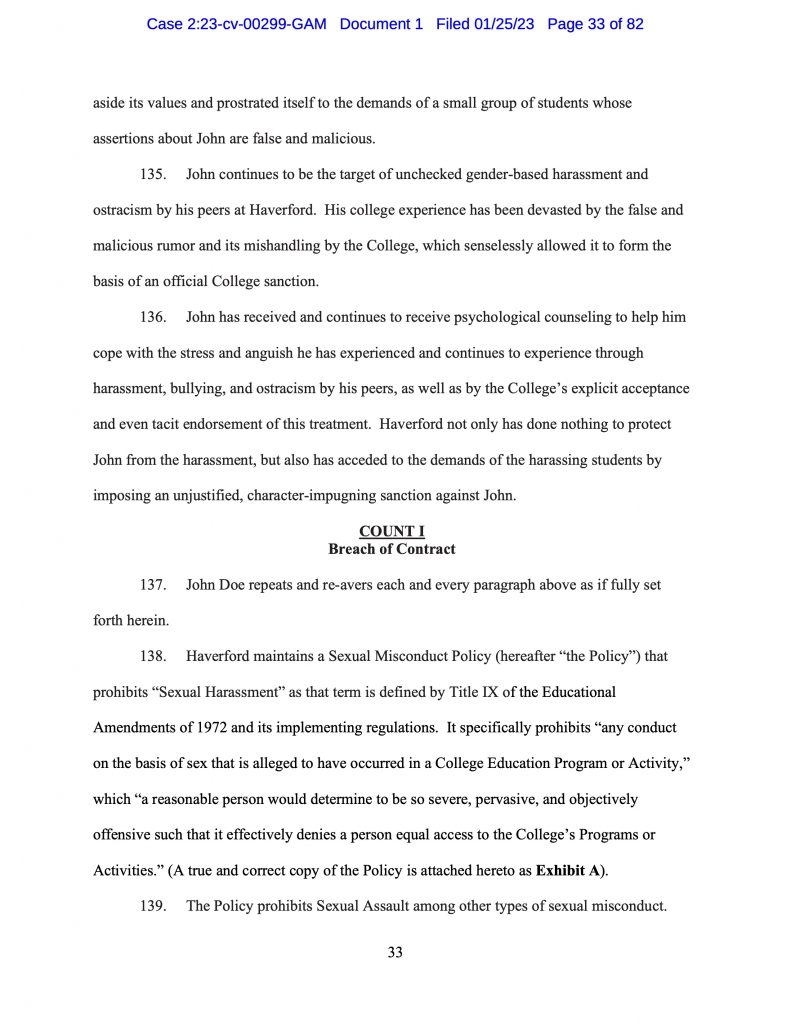
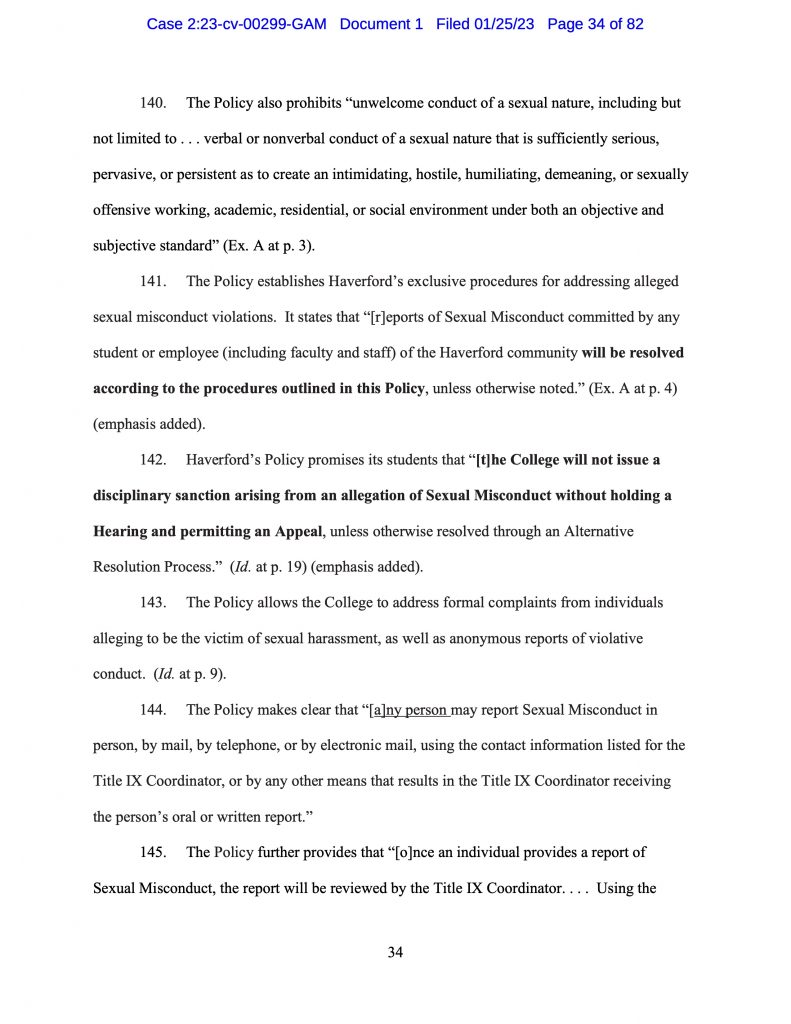
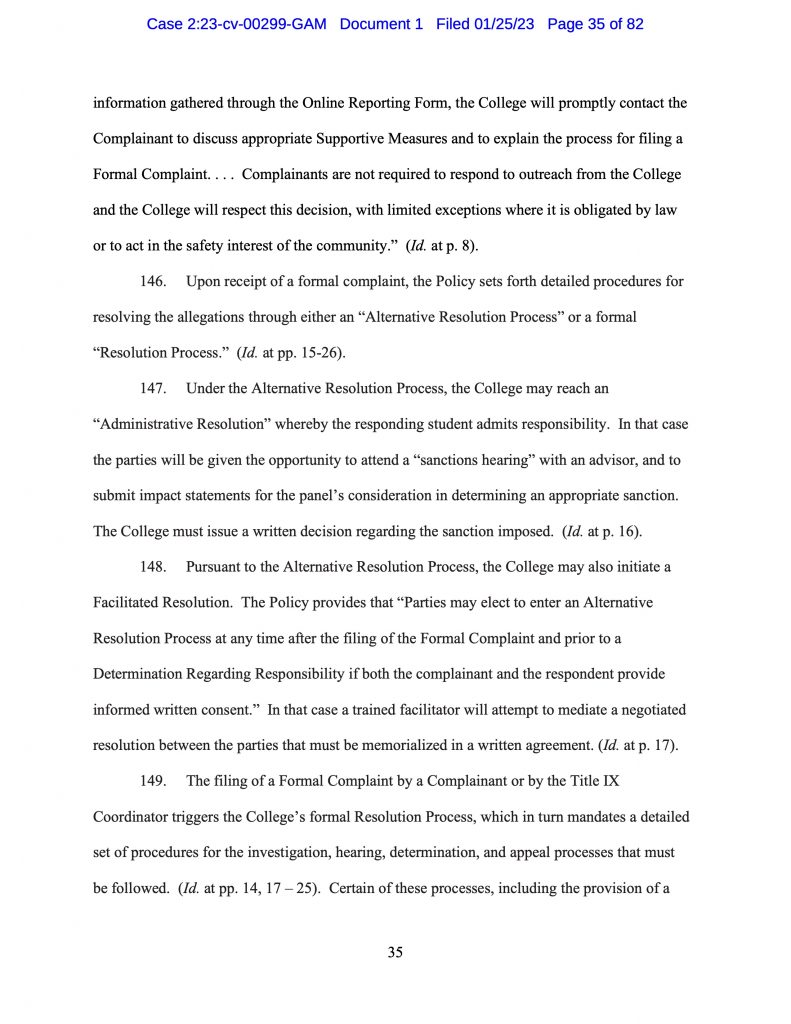
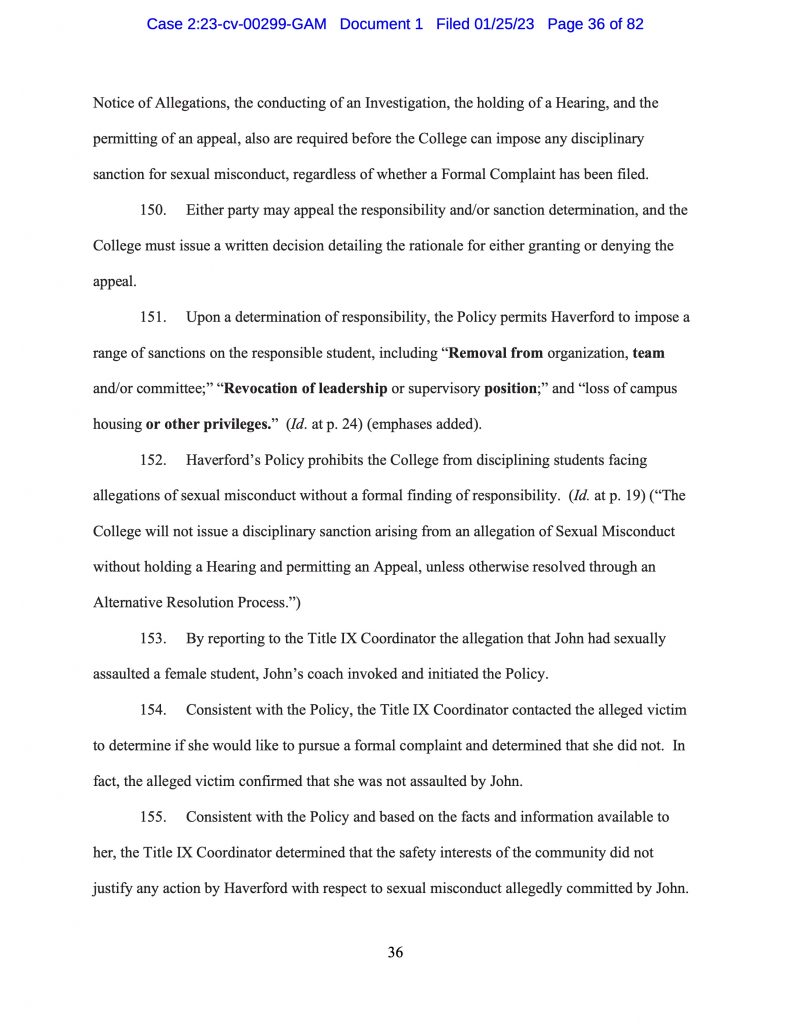
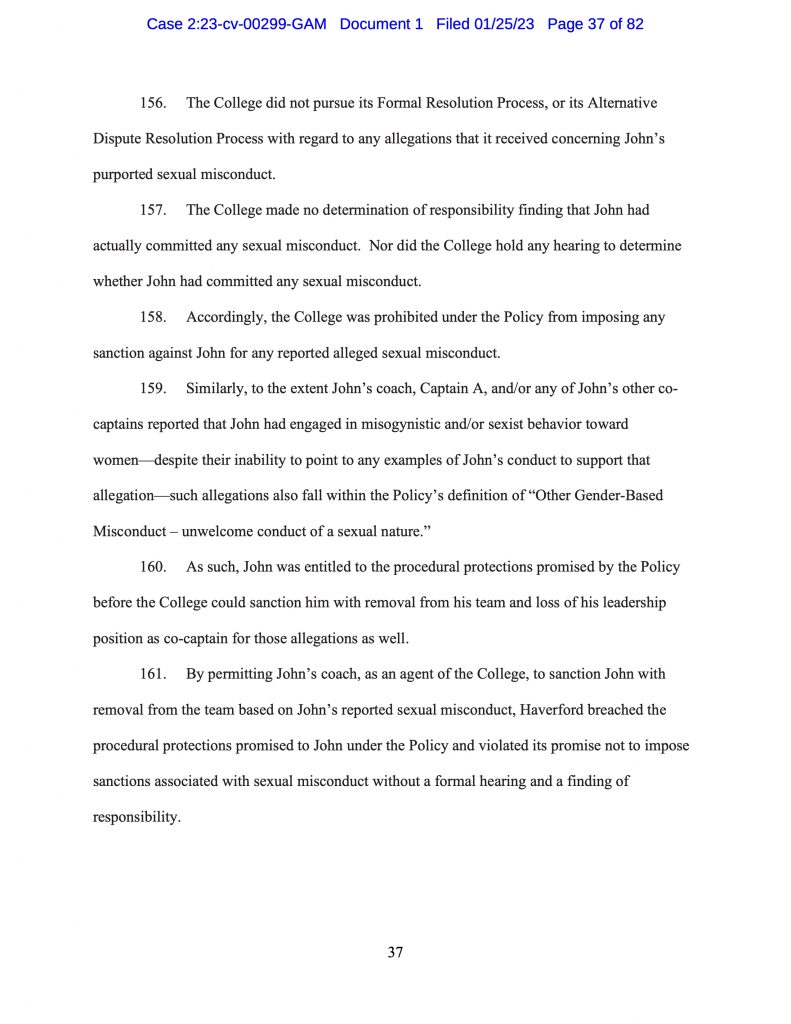
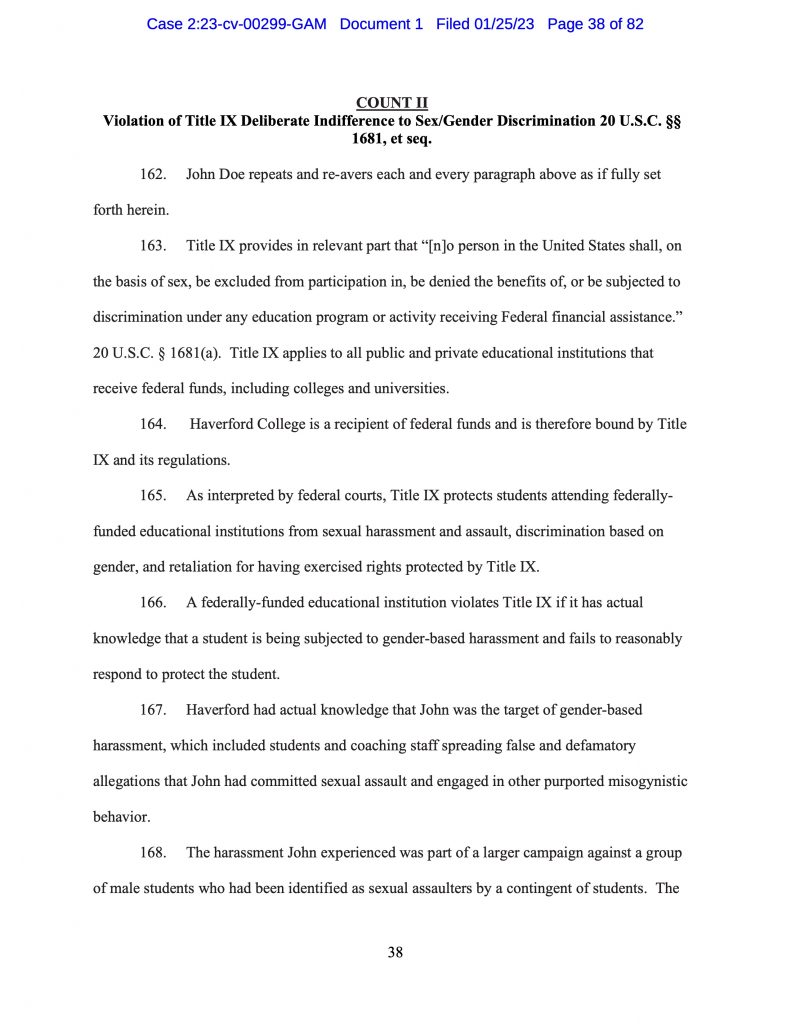
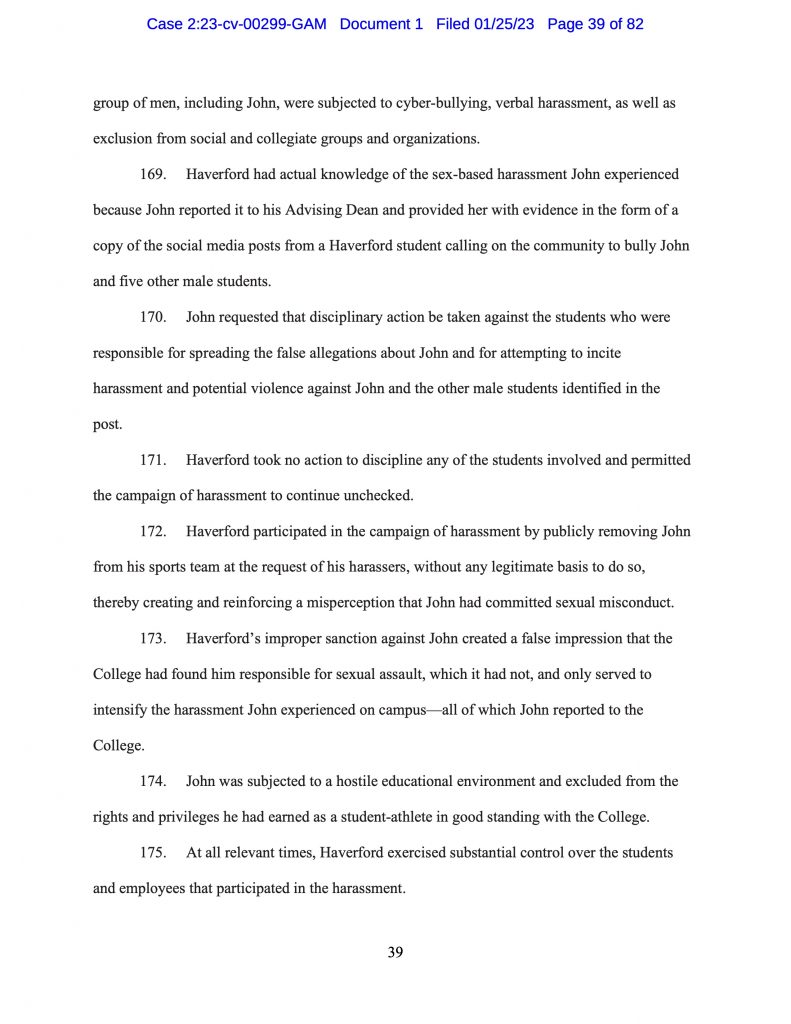
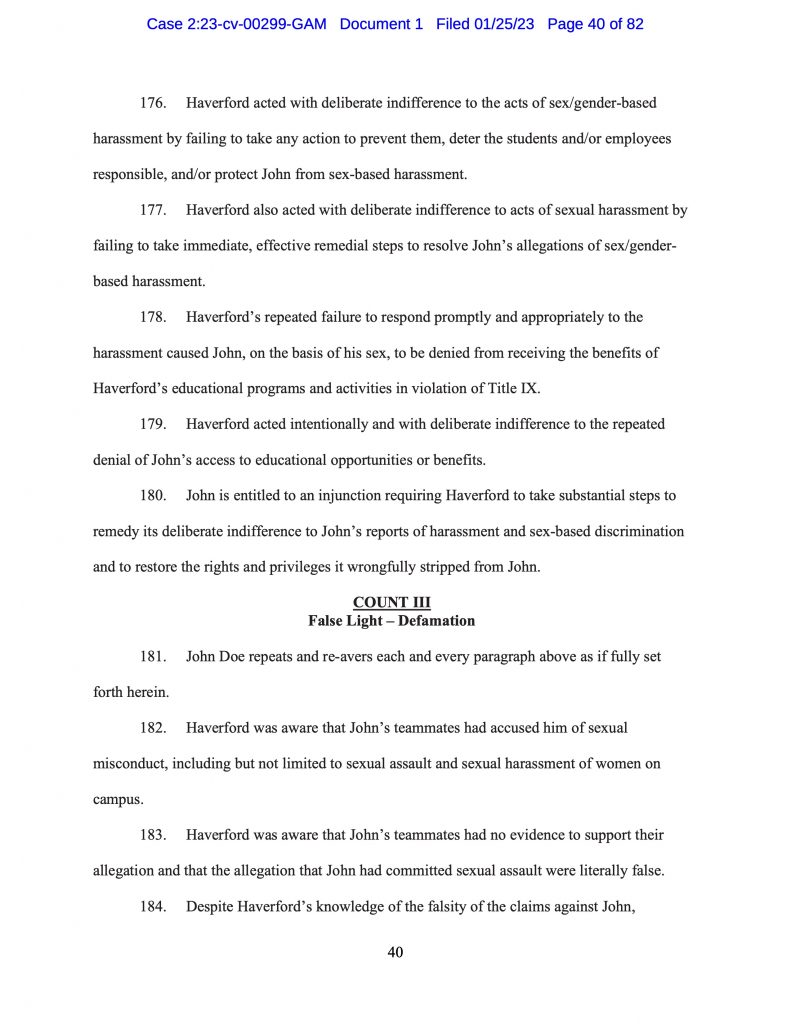
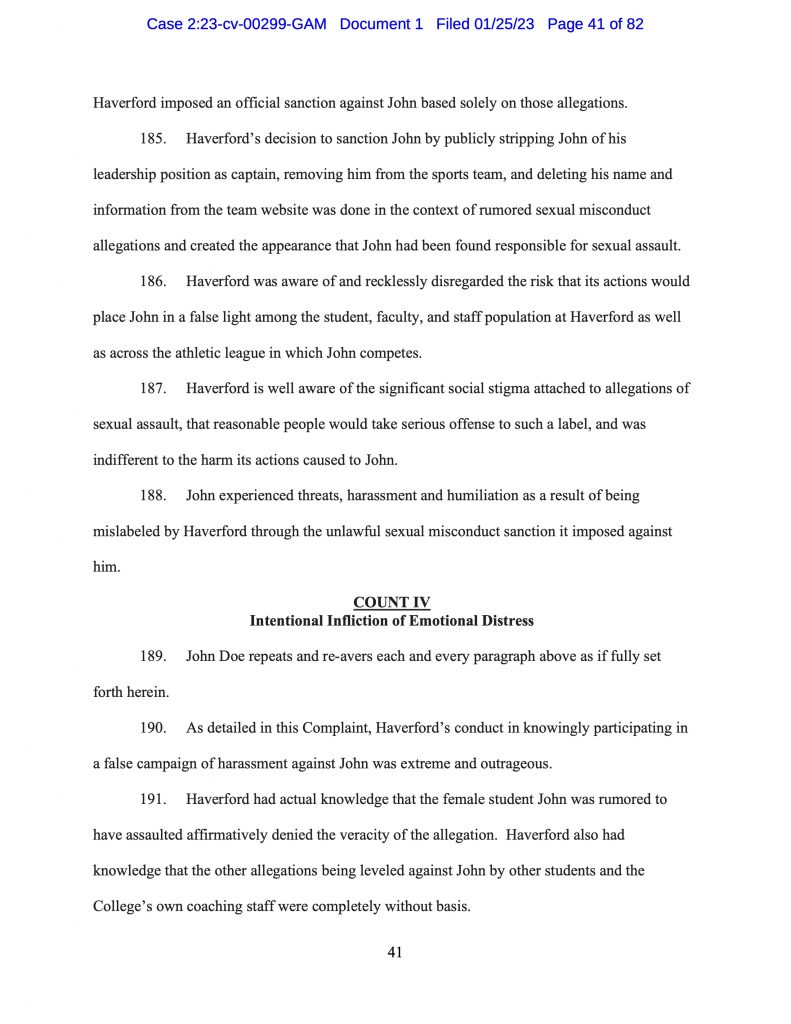
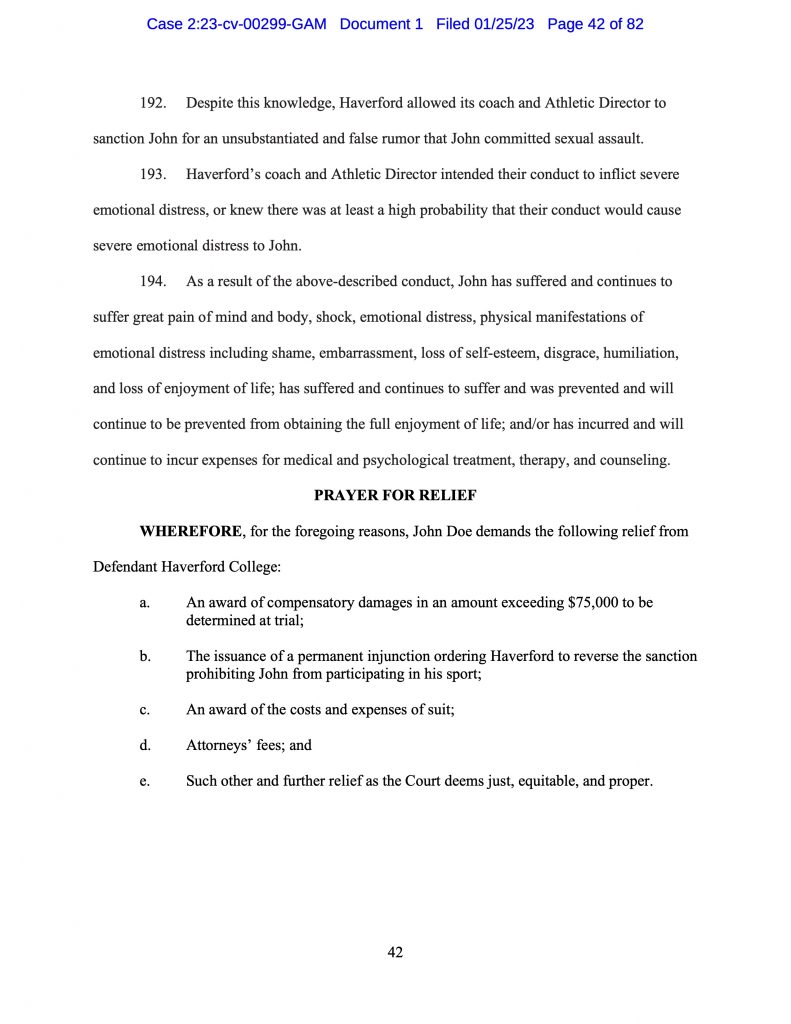
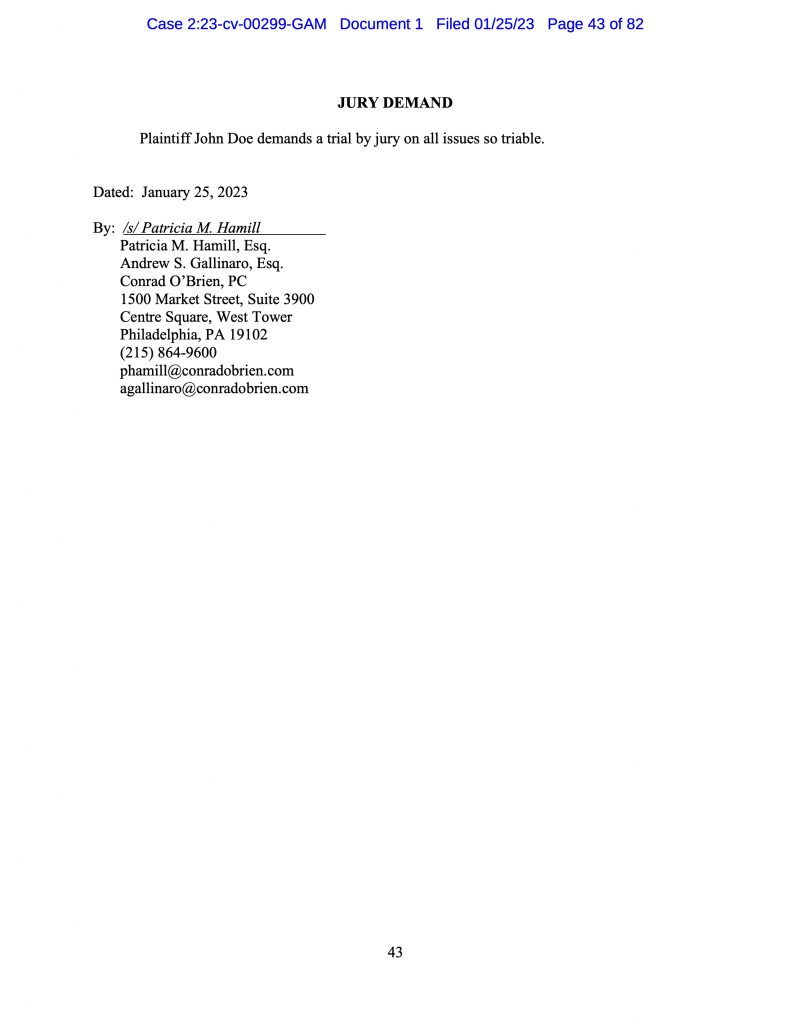
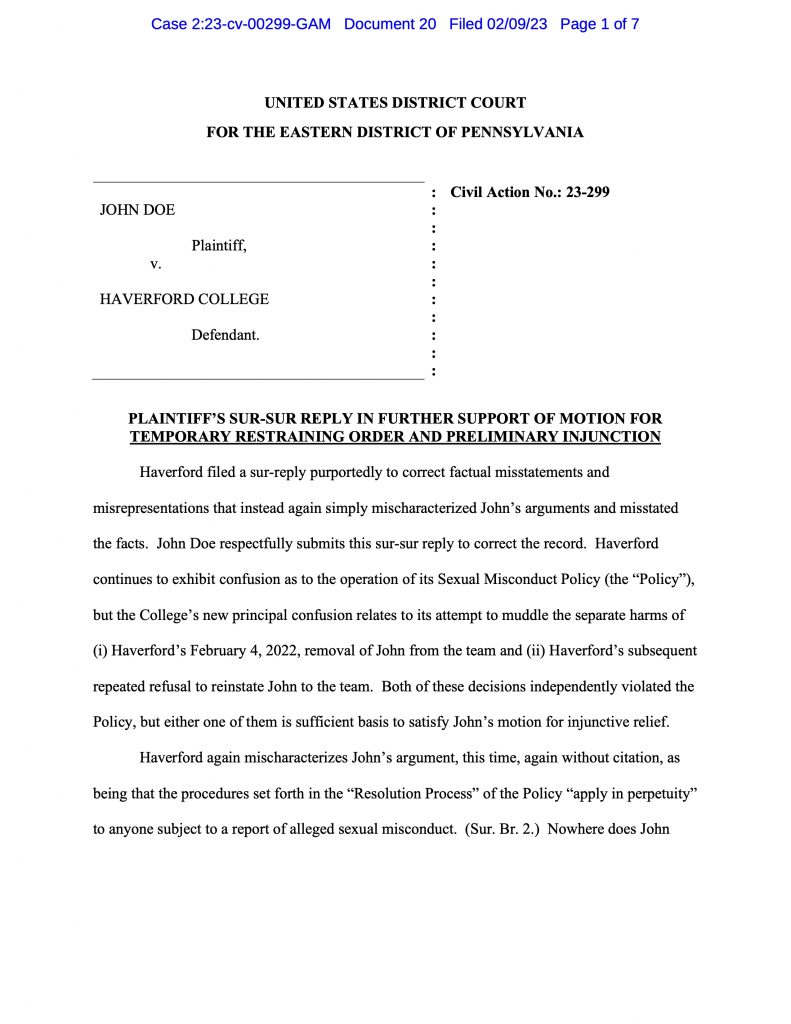
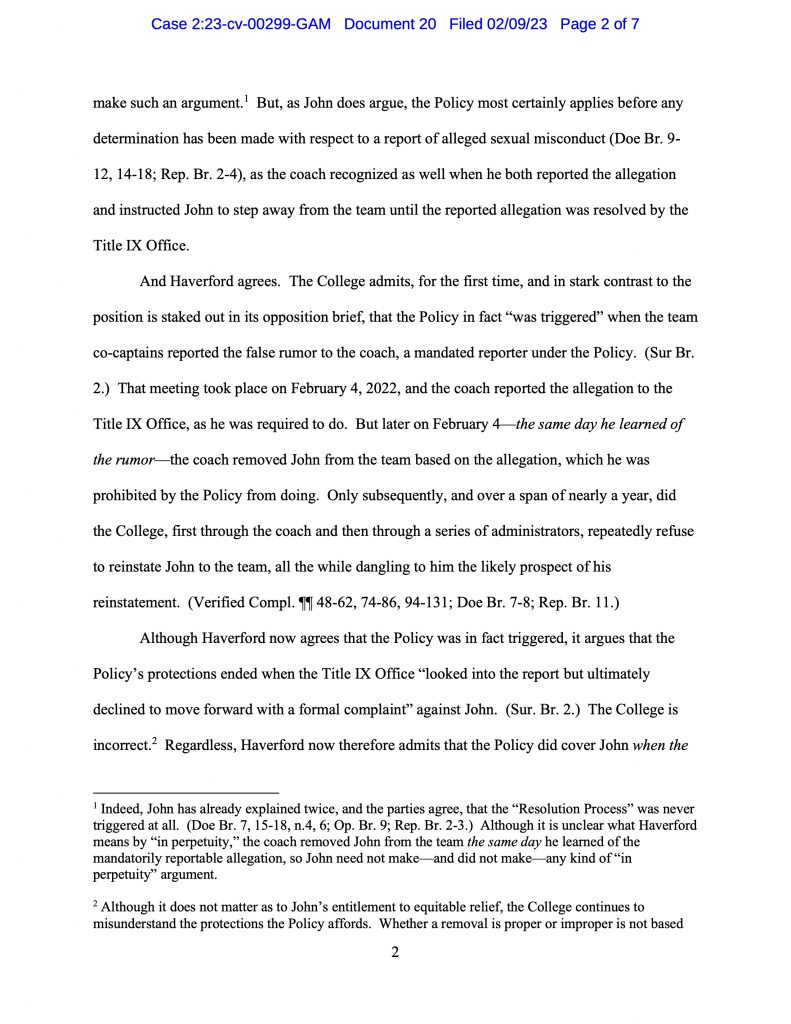
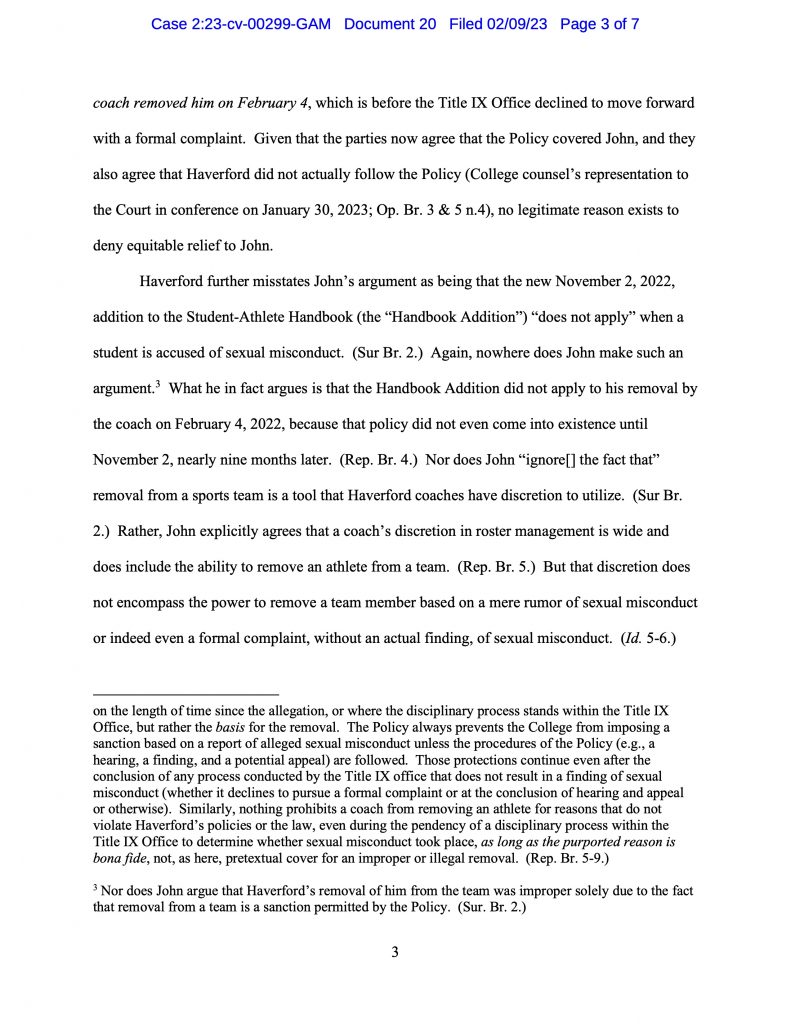
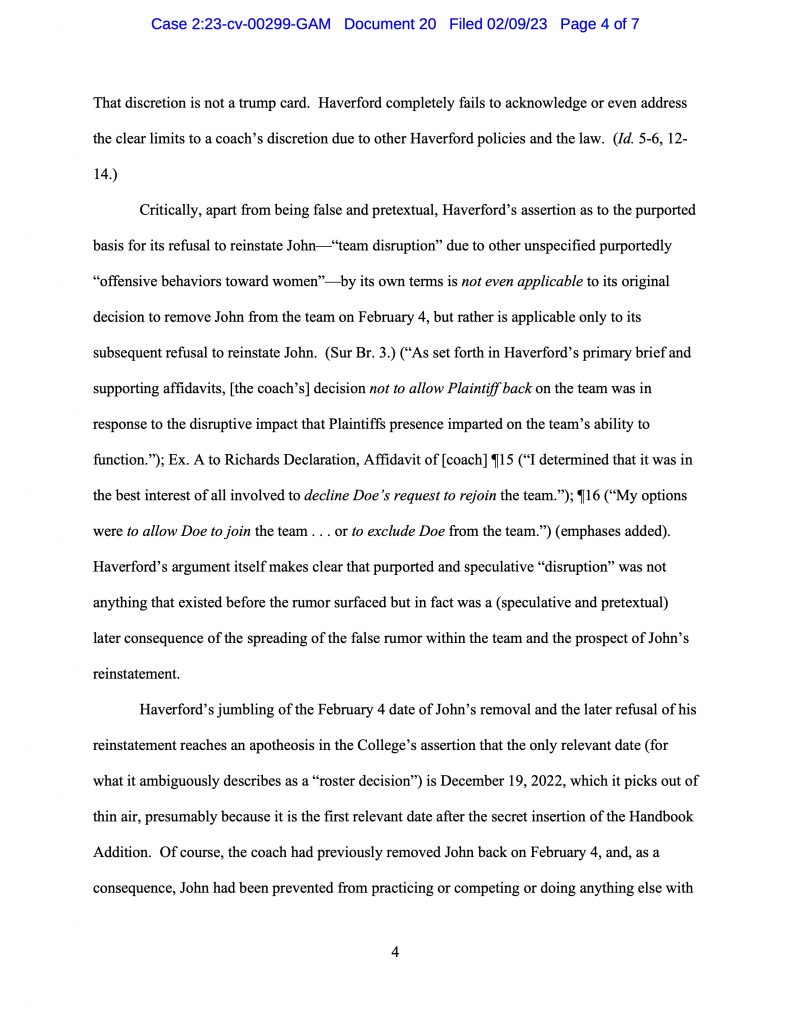
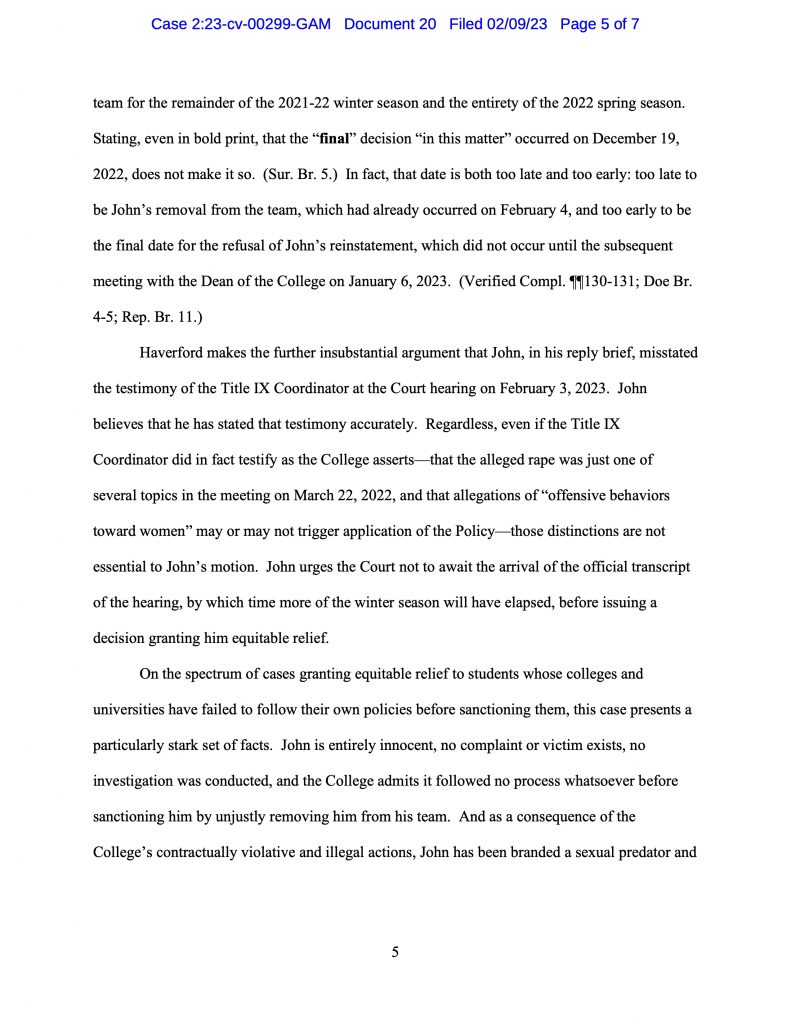
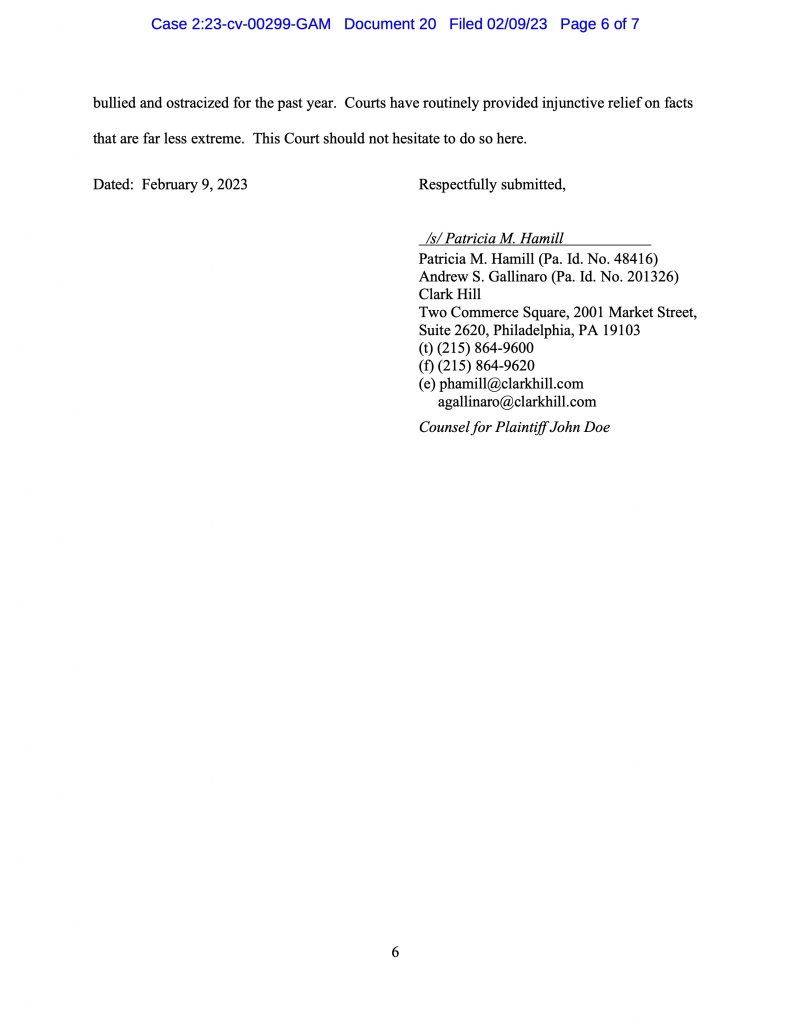
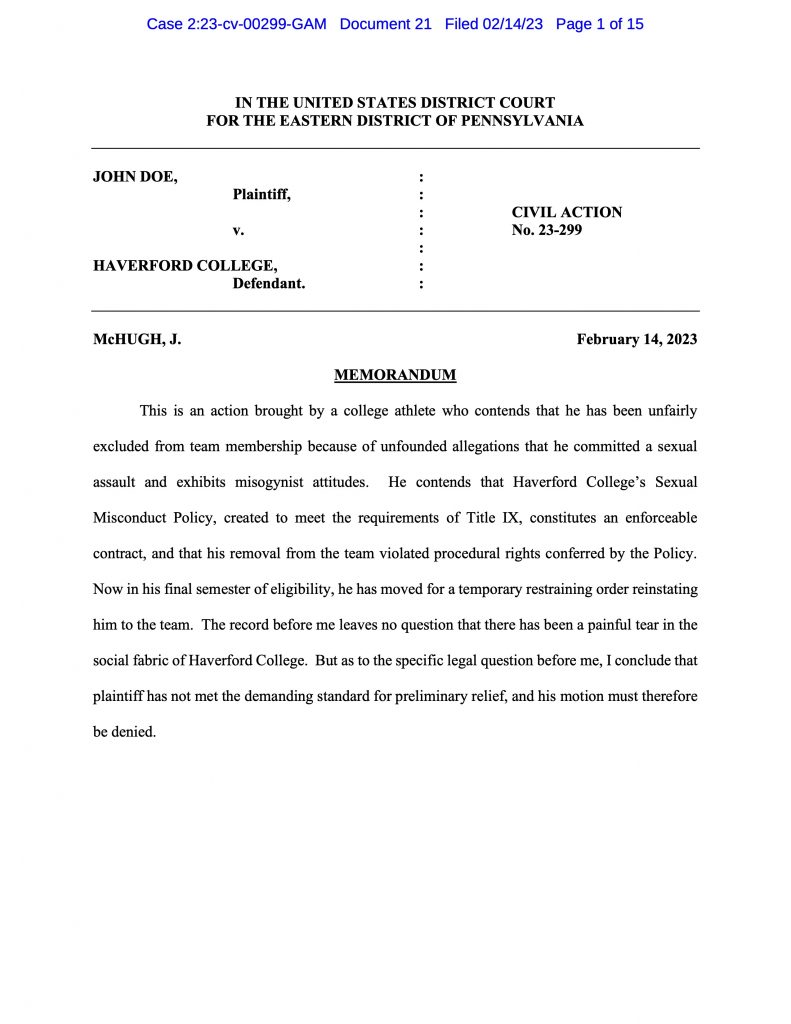
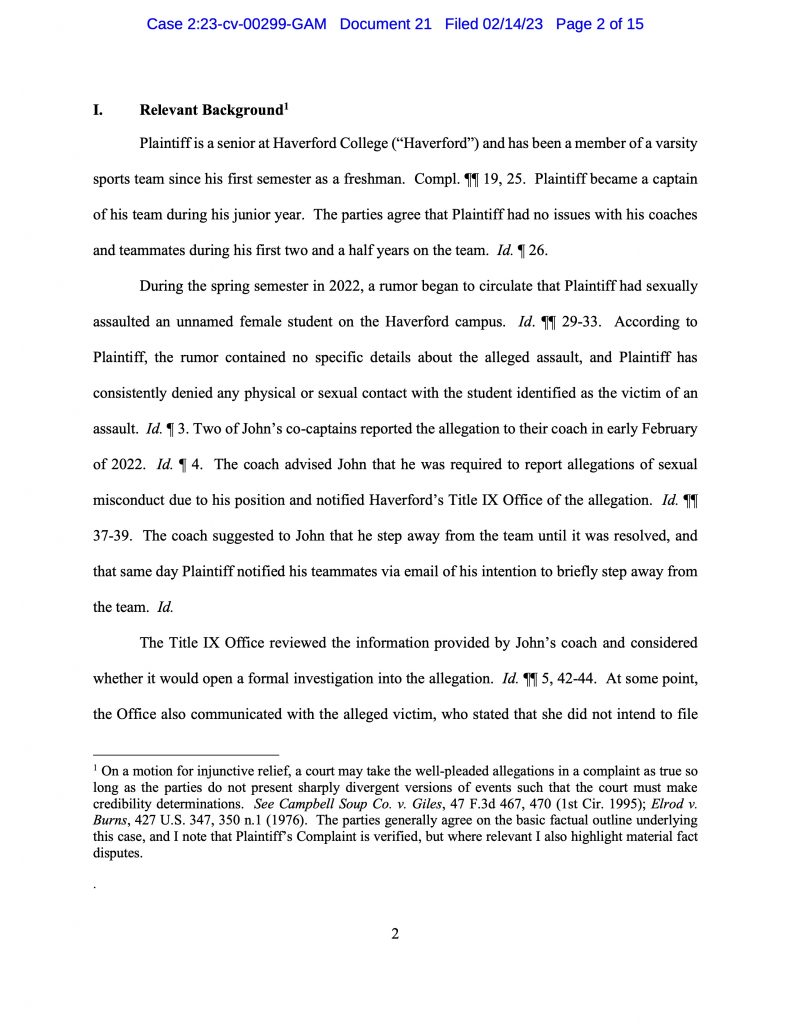
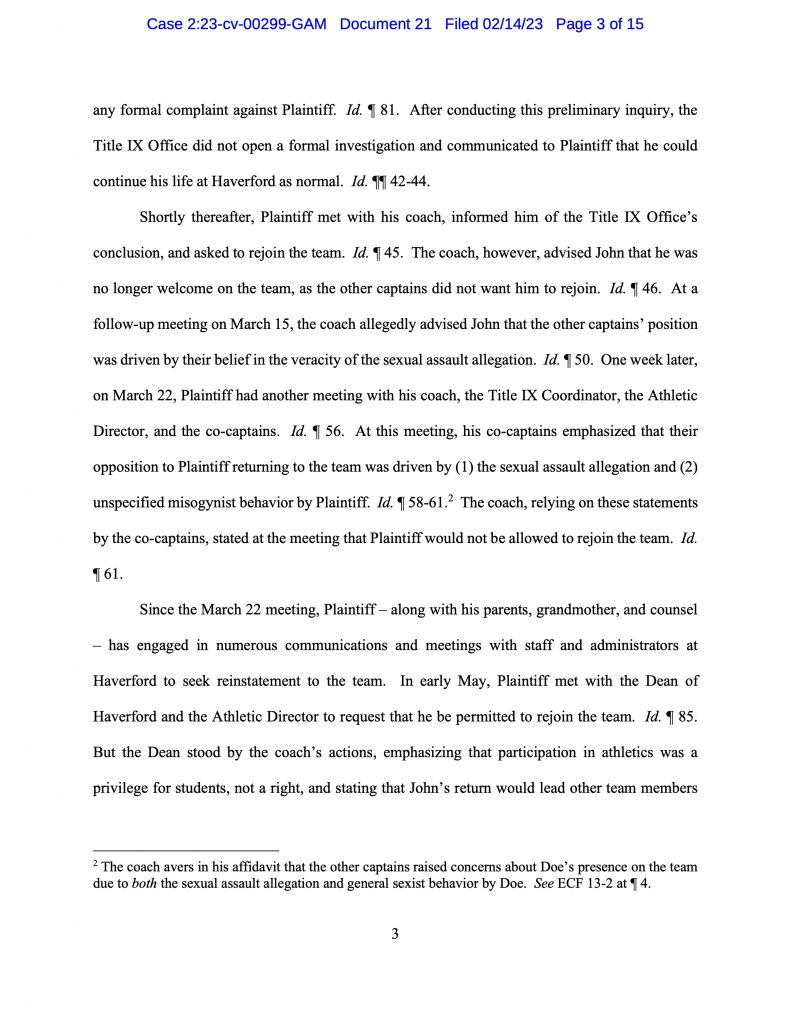
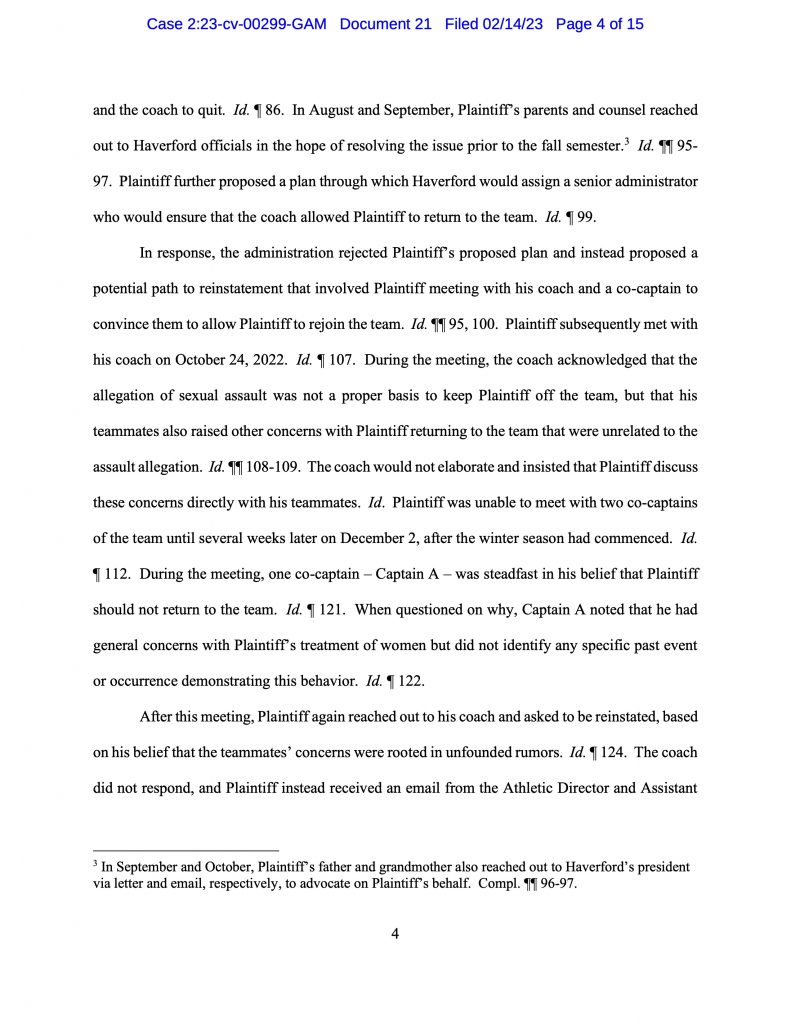
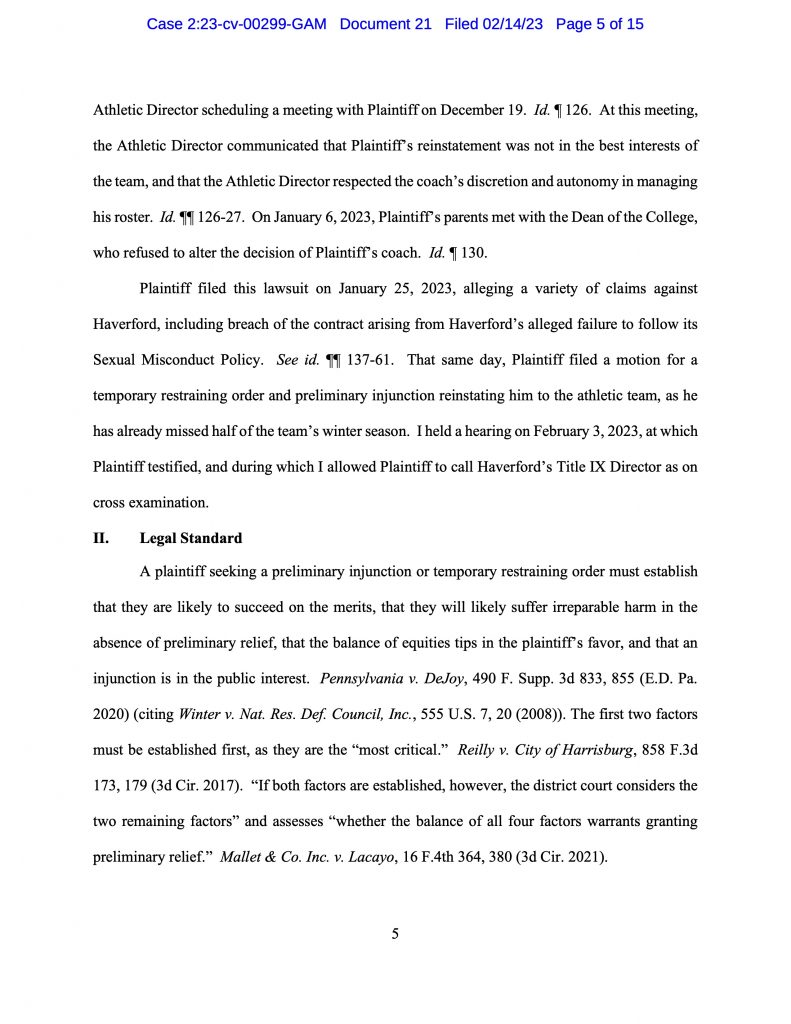
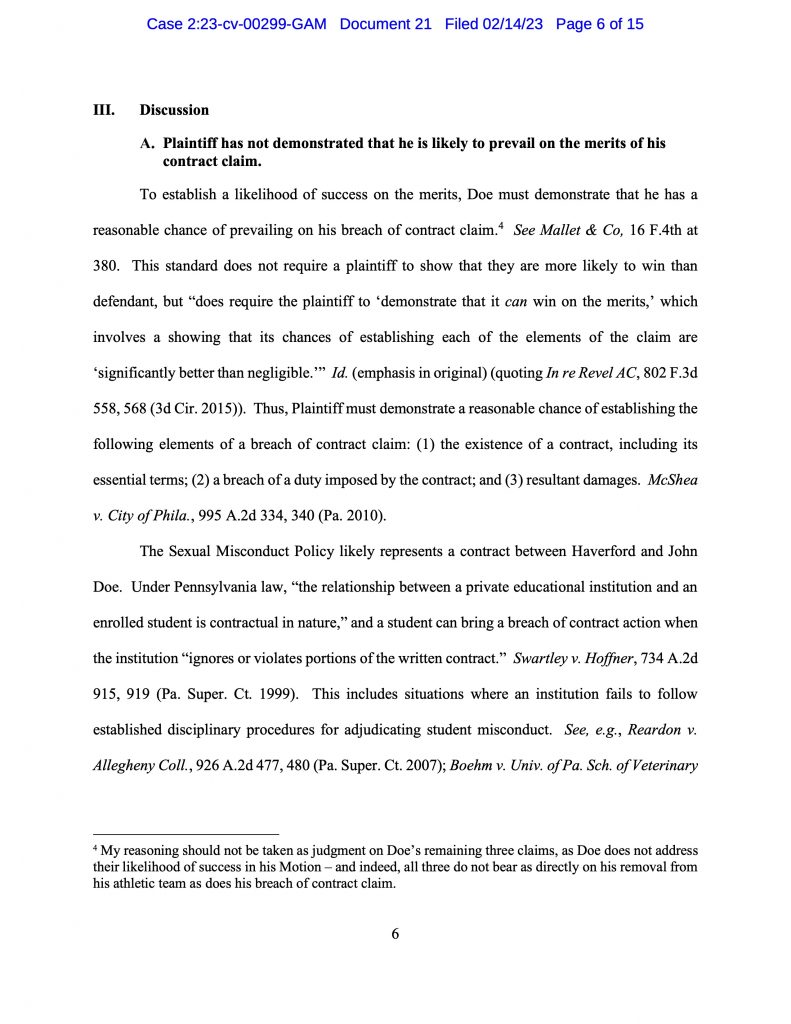
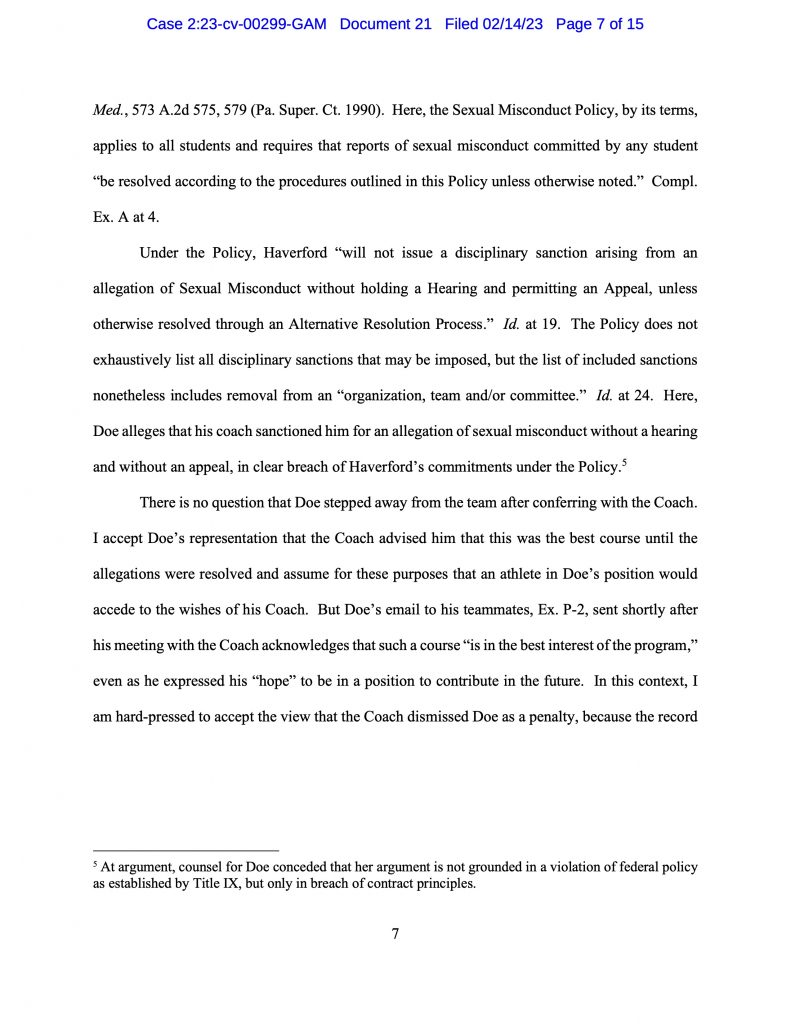
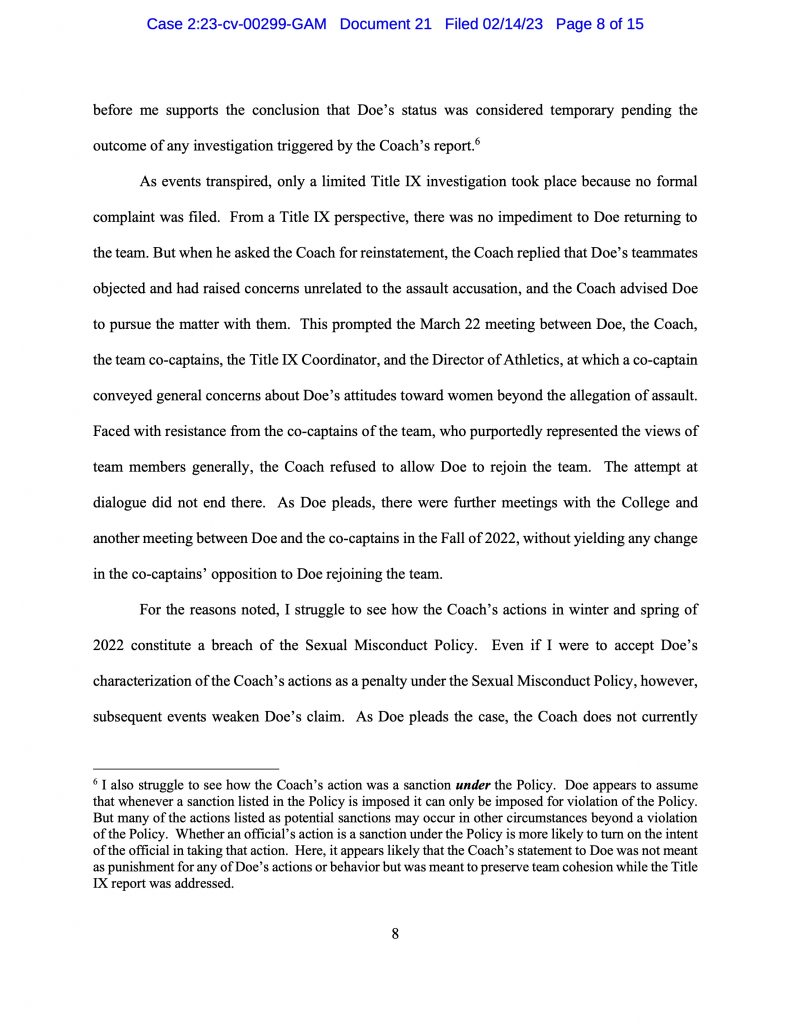
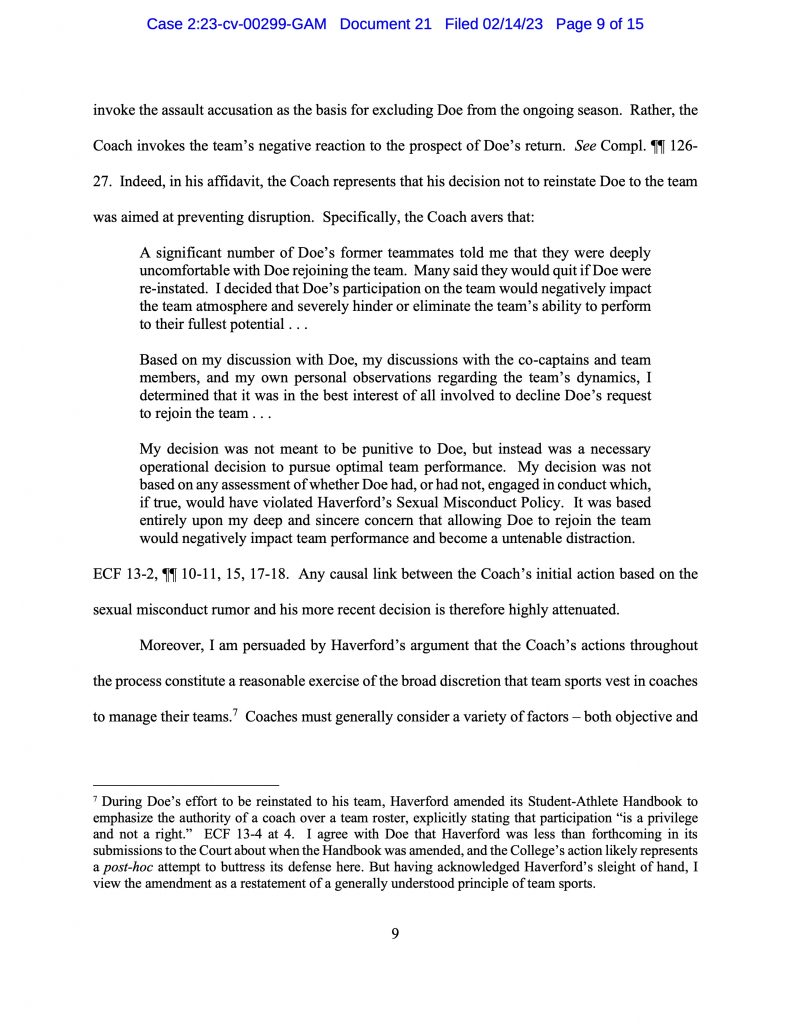
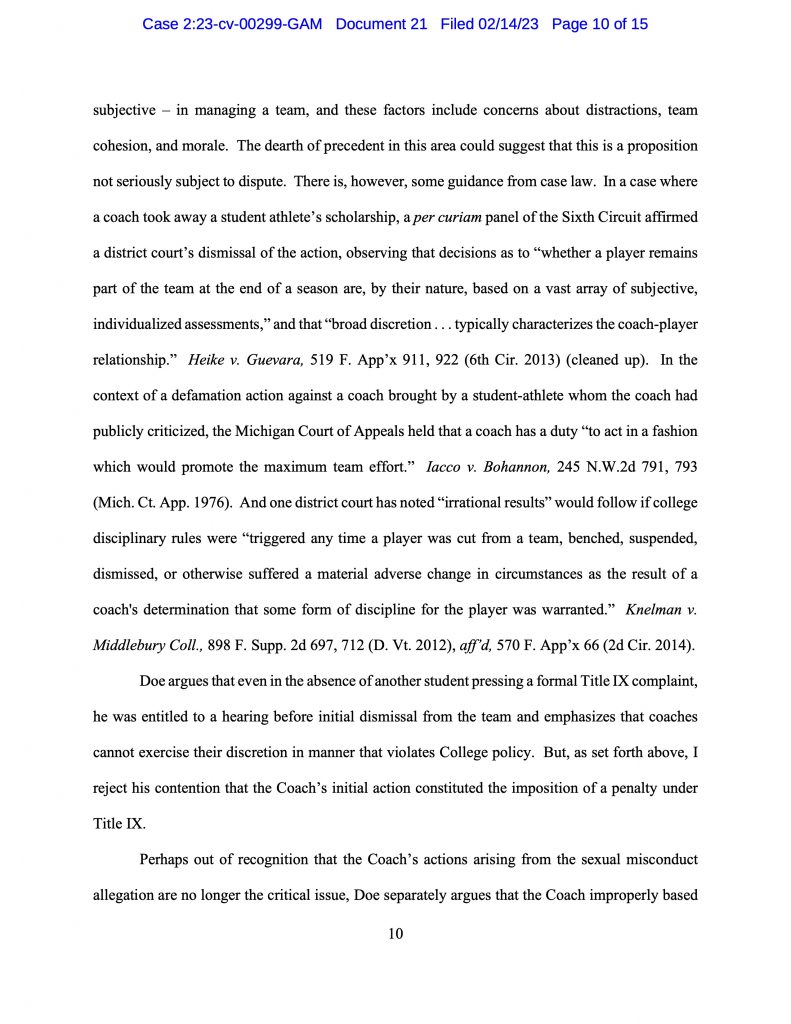
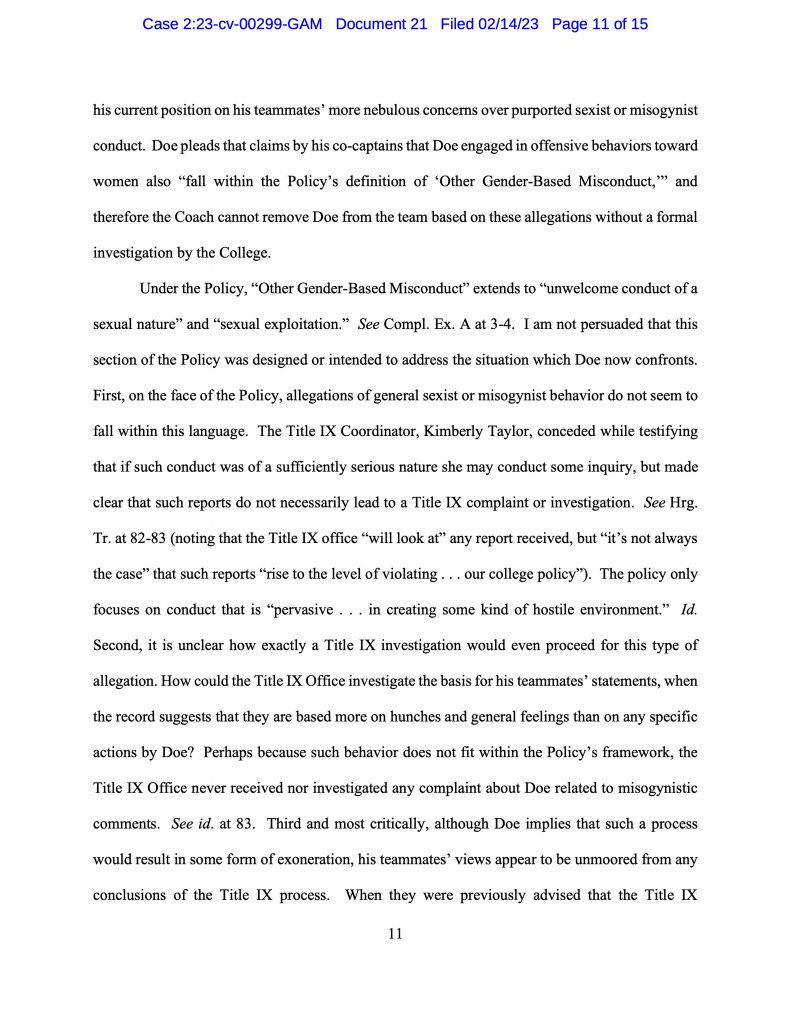
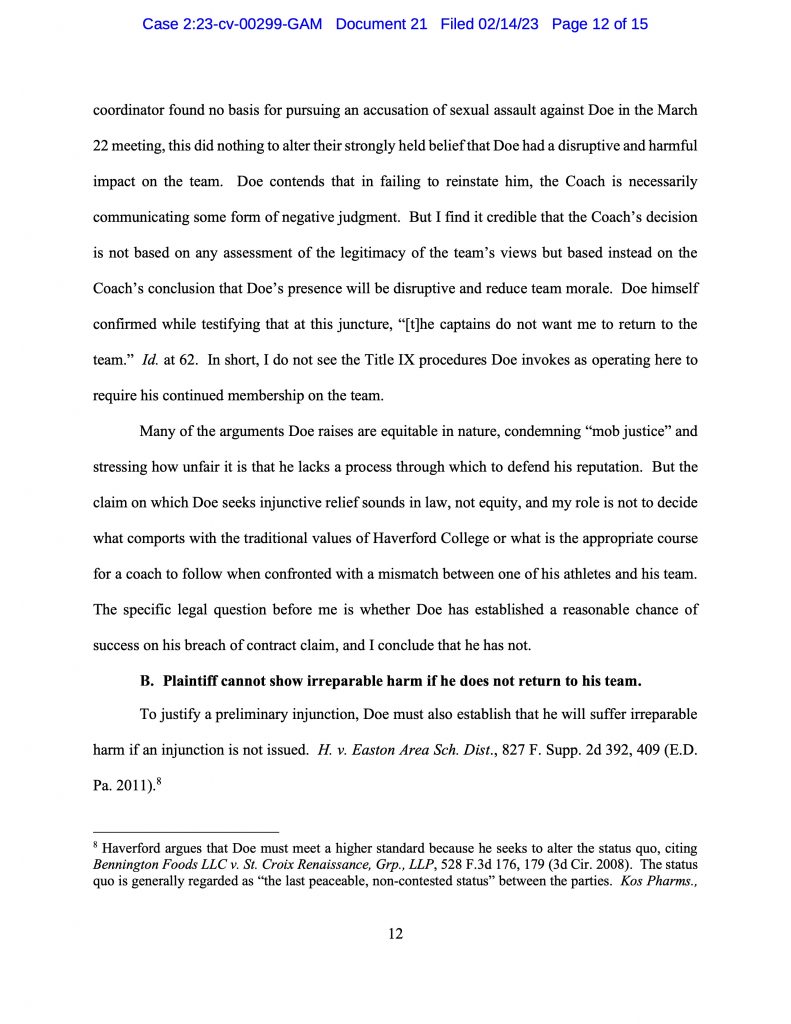
Tim Lobinger has died due to cancer at age 50.
More information: https://www.dw.com/en/tim-lobinger-former-german-pole-vault-champion-dies-at-50/a-64734861
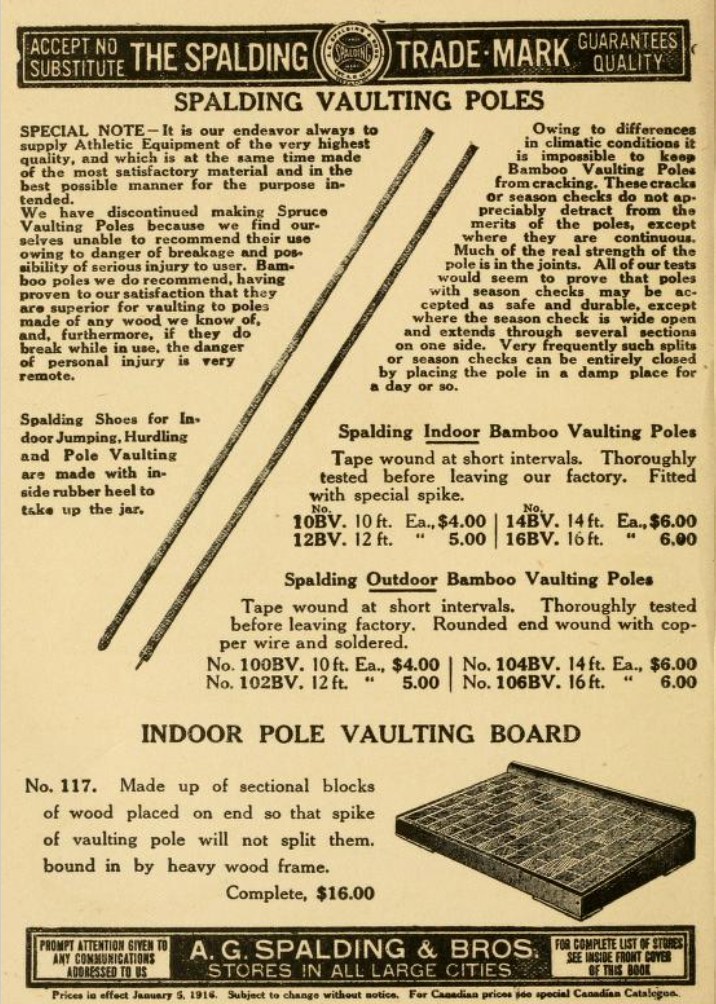
There are big changes coming to which meets are going to count for World Athletics rankings and qualifications.
For meets to count, they MUST appear on the new World Athletics Global Calendar.
I have not yet heard a definitive answer as to whether or not meets run under NCAA rules can be added to the calendar. It is possible that no college meets will count, and even if they are allowed, hard to imagine many college meet directors jumping through the hoops.
I am fairly confident that USATF will continue to accept marks from college meets for the purpose of qualifying to USATF Nationals. This is an issue around international qualification.
If you are a meet director who puts on meets that athletes use to try and improve their international rankings and/or to achieve international qualification standards, I recommend:
I guess the upside of this system is more transparency for the athletes around which marks will count for what purposes.
It is totally fine for meet directors to run meets that do not count at this level, and fine for elite athletes to compete in meets that don’t “count” at that level, everyone just needs to be on the same page about it.
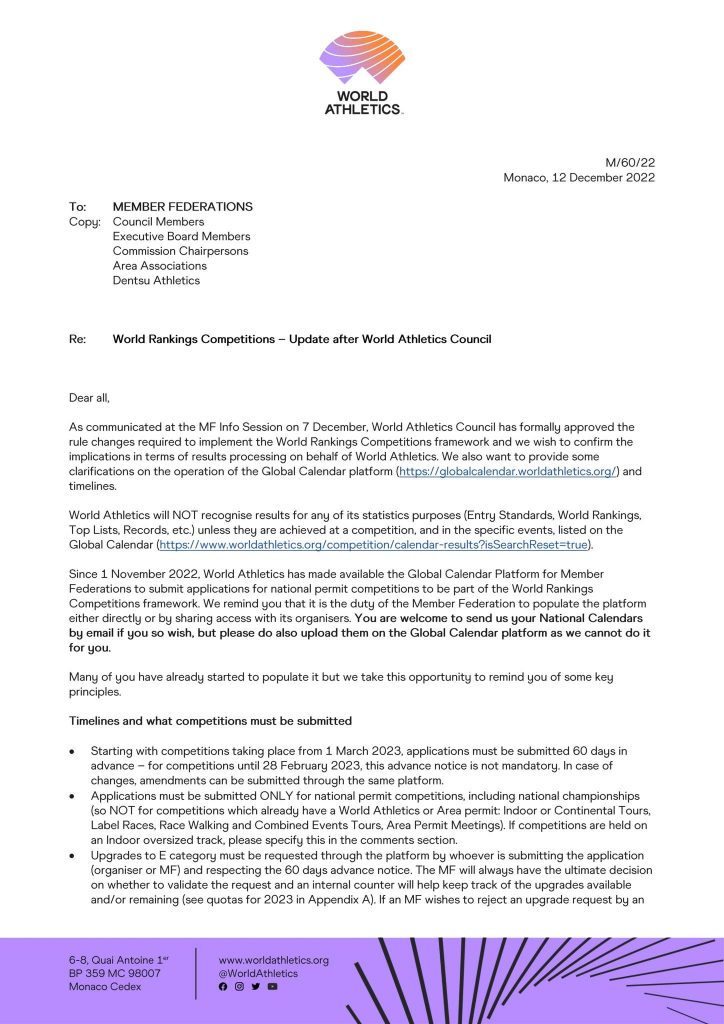
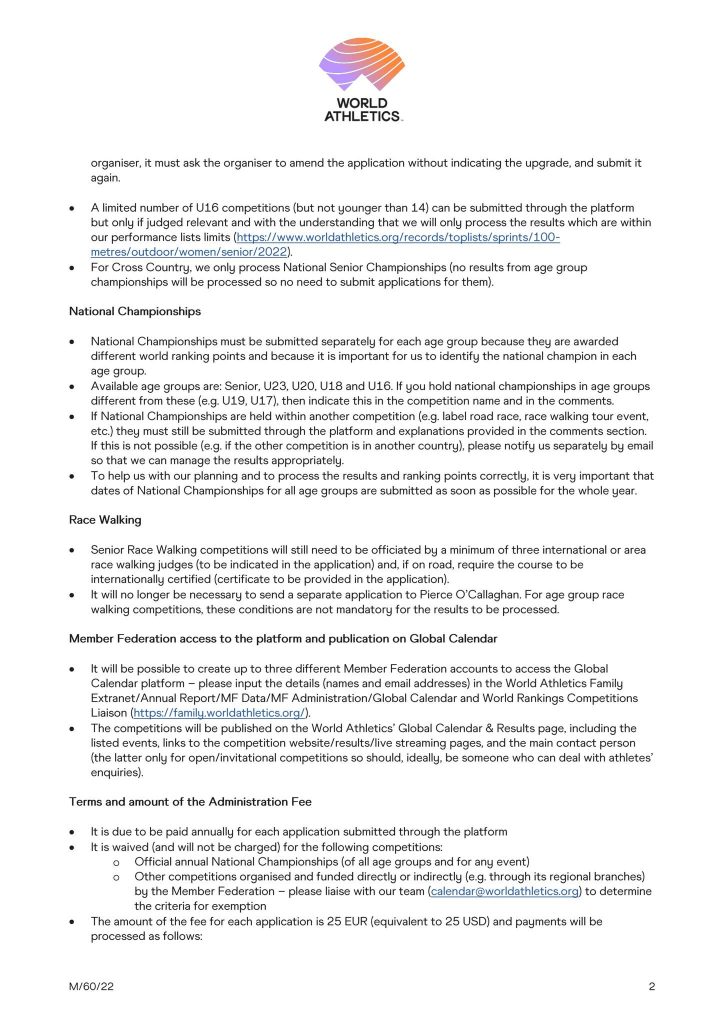
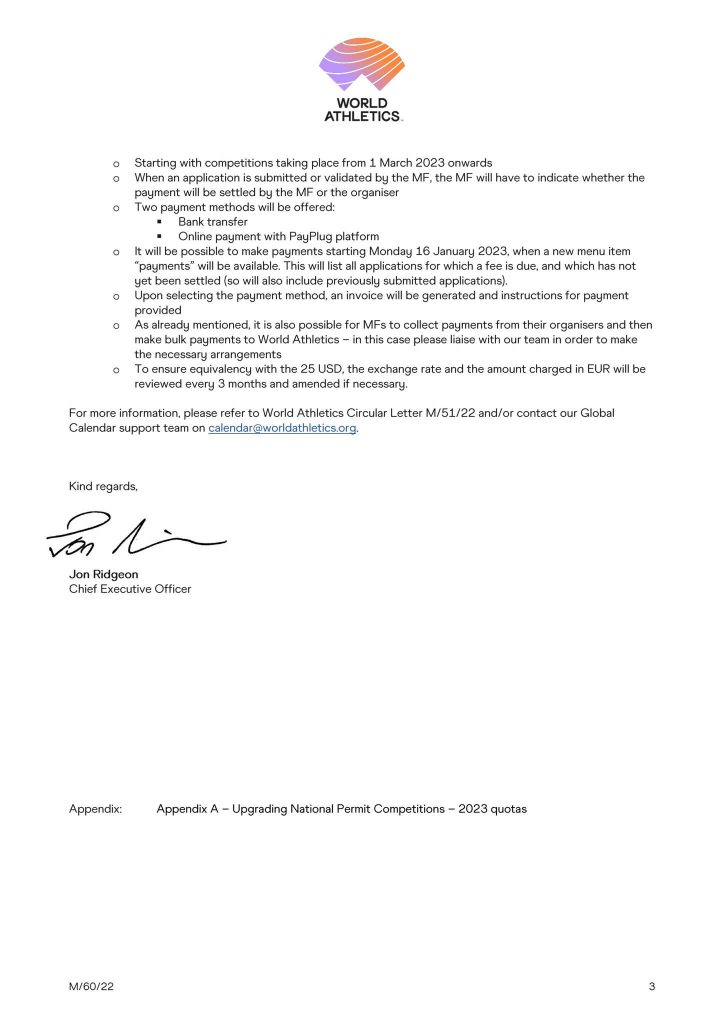
Here is the email I sent to all of the Association Presidents tonight, please let me know if you want a copy to forward to others.
Association Presidents,
Temporary Amendment Vote Tomorrow
At the past two Annual Meetings, I addressed the delegation at closing session and urged you to vote no on the temporary amendments to our bylaws. I felt that the amendments proposed at the time would destroy the system of checks and balances that our NGB had been using successfully for decades.
Over the past year, dozens of zoom meetings have been held by various groups and negotiations were held. Associations were well represented in the process and updates were given regularly to the AEC.
Compromises were made by both sides to address the concerns of the board that the membership has too much power over the business areas of USATF and the concerns that concentrating all of the power at the board level would strip the membership of their voice and eliminate checks and balances.
I was not directly involved with the negotiations, but I attended many meetings giving updates on the process and I am pleased with the outcome of the the compromise legislation. The board unanimously voted to pass this compromise legislation as temporary amendments to the bylaws, now the time has come for the delegates to ratify them.
I urge you to read the letter that L&L Chair Mitch Garner wrote explaining them: https://www.flipsnack.com/USATF/reporttomembership-annualmeeting-11-1-22/full-view.html
More information can also be found in the Annual Meeting document library under Law and Legislation: https://www.usatf.org/events/2022/2022-usatf-annual-meeting/document-library
It is imperative that we pass this compromise legislation. The USOPC did make reference to this matter in our governance audit this year and we need to show them that we are an NGB capable of governing ourselves.
I am not in Orlando, my son was diagnosed with a malignant brain tumor last spring and I cannot risk bringing illness back to him, but if I were there, I would be voting yes on these amendments.
Weighted Voting
This is an incredibly complicated issue, and the parties involved disagree passionately about the facts of the issue, I recognize that no matter what I write here, I will upset people.
At last year’s Annual Meeting, AAC proposed that their vote for the World Athletics Council nominee increase to 40% with a weighted vote. What actually passed is on page 50 of last year’s final L&L package, it did not specifically indicate weighted voting: https://www.flipsnack.com/USATF/2021-final-package/full-view.html
Unbeknownst to apparently everyone within USATF (myself included), for years, the USOPC has been interpreting the term “voting power” in the Sports Act to mean that in situations involving very large votes, if the athletes of an NGB are unable to achieve their voting power through raw numbers, they have to achieve that voting power through other means such as weighted voting.
When the requirement for AAC representation was 20%, we were apparently close enough that the USOPC did not have a problem with this aspect of our governance, but now that the requirement has increased to 33.3%, there are no NGBs able to meet their AAC voting power through raw numbers in these large vote situations.
The issue is addressed (albeit somewhat obliquely) on page 43 of the USOPC bylaws and we can look at other NGBs for examples of this being applied in the real world.
Weighted voting was not addressed in our USOPC Governance Audit, for reasons that are still unclear, but there have been other conversations happening between AAC leadership and the USOPC and our staff and the USOPC.
How much the board of directors was aware of this issue is a contentious issue. You can see from the posted board minutes that there was never a clear discussion and vote on weighted voting.
The Governance Manual was not posted until September and in October, concerns were raised that there were changes to the bylaws that had not been approved by the Board or the delegates. I do not think anyone fully connected the dots that there was a disagreement about weighted voting at this Annual Meeting until late November.
USATF’s Board of Directors met this morning to try and rectify the situation. They voted to pass a temporary amendment allowing weighted voting so that the athletes can achieve their voting power as mandated by the Sport Act and USOPC.
It was critical that this pass for us to be compliant with our requirements as an NGB.
Because this is a completely new amendment that has not gone through the Law and Legislation process, this will temporarily be in effect until next year’s Annual Meeting when we will need to vote for it to be permanent. Next year is an L&L year, we all now have time to sort out the nuts and bolts of this change to how we govern ourselves.
Weighted voting was applied to the vote for World Athletics Council nominee today and the results were the same using either method, Willie Banks won the election.
Weighted voting will also be in effect at closing session tomorrow to ensure the athletes have the voting power they are entitled to under the Sports Act.
I am not happy that it was necessary to hold an emergency board meeting this morning, but I applaud our board chair Mike Conley for stepping up and making the meeting happen.
I am sorry for the lengthy email, but I hope this sheds light on the process that happened to get to this point.
Please reach out if you have questions, I may not have all of the answers but I am happy to point people in the right direction as best I can.
Thanks,
Becca Peter
Willie Banks has been re-elected as the USATF nominee to the World Athletics Council.
Tonja Buford-Bailey has been elected to reprsent Coaches Advisory.
There is a run off for the Youth board position between Lauren Primerano and Norine Richardson.
[Edit: Norine won the run off]

I have had a lot going on and have not had the energy to update everyone on the L&L situation, but here is an update(a few weeks old now) from someone else who was involved with this rather intense process that has been going on since last December.
I appreciate everyone on the board, especially the athletes, for coming to the table and bargaining in good faith so we could come up with changes to the bylaws that everyone can live with.
The good news is that the USATF Board on Monday evening passed compromise Temporary Amendments after four months of negotiation with the rank-and-file. The compromise is expected to be acceptable to the USOPC and easily to be ratified by the delegates at the USATF Annual Meeting in Orlando after Thanksgiving.
The compromise still gives the delegates the final say on key “carved out” bylaws & regulations, but lets the Board have the final say on more business-oriented items. For a few things, both the Delegates and Board approval will be needed in the future.
The other sticking point had been whether the elected President is automatically the Chair of the Board or the Board picks it’s own Chair. The compromise is that the President is the Chair unless 2/3s of the Board picks someone else.
With the compromise, it is expected the Annual Meeting will be quiet with no floor debate as happened the past two years when Temporary Amendments by the Board were defeated.
Tracy Sundlun and Olympic Race Walker Curt Clausen were the prime negotiators for the rank-and-file and assisted by a group of about ten including our friend Becca.
You can watch the World Athletics Championships women’s pole vault final for free on the World Athletics YouTube page: https://www.youtube.com/watch?v=OUavb8SC1KE
No VPN needed if you are in the US.